












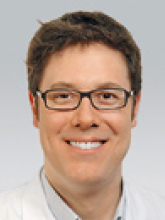
Lukas Altwegg studied medicine in Basel and then completed a postdoctoral fellow in the cardiovascular research of the Department of Physiology, University of Zurich and worked on human connective growth factor. This was followed by further training in Internal Medicine at the Kantonsspital Baden under Prof. Hans-Jürg Beer and finally in cardiology under Prof. Thomas F. Lüscher at the University Hospital Zurich. After obtaining the FMH specialist in cardiology, he moved to Vancouver to work under Prof. John Webb, the pioneer of trans arterial valve implantation. After his return to Zurich he set up together with Prof. Willibald Maier the TAVI program. In 2012 he habilitated at the Medical Faculty of the University of Zurich and by 7 January 2013 he was elected to the St. Clara Hospital chief residency in cardiology.
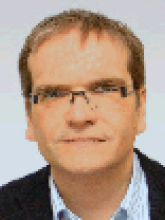
Urs Arnet started his carreer at the University of Basel where he studied pharmacy. He did his PhD in Prof. Lüscher’s Cardiovascular Research Group at the University Clinic Basel (Switzerland) on nitrate vasodilators. After his PhD he moved to the John Hopkins University (USA), where he investigated a protein that synthesizes endothelial nitric oxide. In 1995, he returned to Switzerland, where he continued his research at Prof. Lüscher’s Cardiovascular Research Group at the “Insel” Hospital Bern. In 1997 he assumed a position at Merck, Sharp & Dohme-Chibret AG.
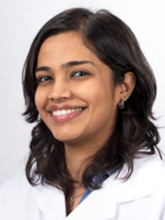
Tasnem Arsiwala obtained her Bachelor of Pharmacy at the University of Mumbai in 2010 and then moved to the University of Oxford to the Said Business School and then obtained a Master of Science in Pharmacology in 2011. She later graduated at the University of Zurich as a PhD in Molecular Integrative Medicine based on her work on “Sirt6 deletion in bone marrow-derived cells increases atherosclerosis” at the Center of Molecular Cardiology in 2016. She then accepted a postdoctoral fellowship in nephrology research at the Inselspital Bern, Switzerland. Currently, she works at Novartis, Basel Switzerland.
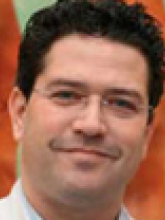
Professor of cardiology at the University of Oslo in Norway. Dan Atar studied medicine in Basel and was then trained in internal medicine and cardiology. This was followed by stays abroad: at John Hopkins University in Baltimore (1991–1994) and the University of Copenhagen, where he worked as a senior cardiologist. From January 1997 to June 1999, Prof. Dr. Dan Atar served as senior physician in the Department of Cardiology at the University Hospital Zurich through a medical research position supported by the Prof. Dr. Max Cloëtta Foundation. His license to teach at University (Habilitation) was transferred from the University of Basel to the University of Zurich. In addition to clinical work Dr. Atar conducted experiments: he investigated ischaemia and reperfusion of the heart. After serving as senior physician at the University of Copenhagen, in Frederiksberg Hospital, in 2002 he was appointed head of the cardiology department at the University of Oslo in Norway. Here he worked with a large team of cardiologists and clinical researchers, especially in the field of cardiac markers, heart failure, and cardiovascular pharmacology.
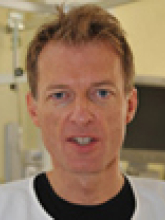
Markus Béchir studied medicine at the Universities of Zurich and Sydney, Australia. He wrote his dissertation at the Department of Cardiology (Prof. G. Noll) on muscle sympathetic nerve activity in vaso-vagal syncope. He then trained as a FMH Specialist in Internal Medicine and in Intensive Care at the Department of Cardiology at the University Hospital Zurich. Scientifically, Markus Béchir worked primarily to Transplant Critical Care Medicine and volume replacement therapy in intensive care patients. In 2010 he was Senior Consultant and Head of Visceral Surgical Intensive Care Unit at the University Hospital Zurich. In 2011 he habilitated at the University of Zurich in the field of Intensive Care Medicine. Since 1.2.2013 chief physician of the range Intensive Care Medicine, Pain Medicine and Operative Medicine at the Swiss Paraplegic Center in Nottwil.
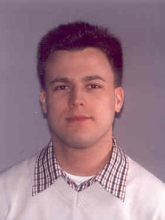
Christian Besler has studied medicine in Hannover, Germany and joined the Cardiovascular Research Division at the Institute of Physiology in 2010 to work on HDL dysfunction under the leadership of Prof. Ulf Landmesser, a study that eventually became a seminal contribution published in the Journal of Clinical Investigation in 2011. He also worked part time in the outpatient clinic of the Department of Cardiology at the University Hospital (Prof. Thomas F. Lüscher) and then trained in internal medicine at the Regional Hospital Uster, Switzerland (PD Dr. Esther Bächli) and eventually moved back to Germany for further training.
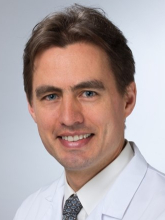
Ronald Binder studied Medicine at the University of Vienna. He then accepted a research fellowship at the Albert Schweitzer Hospital in Lambaréné, Gabon and then moved to the Institute for Tropical Medicine of the University of Tübingen, followed by training in internal medicine at the Krankenhaus-Spitalfonds Waldshut-Tiengen, both Germany. In 2007 he completed his training in internal medicine at the “Inselspital” (University Hospital Bern; Prof. Urs Bürgi). From 2006 – 2010 he trained in cardiology at this institution under Prof. Bernhard Meier and later Prof. Stefan Windecker. Thereafter, he accepted a fellowship in transcatheter valve and structural interventions at the St. Paul’s Hospital of the University of British Columbia under the leadership of Prof. John G. Webb. In 2013 he became attending physician in interventional cardiology at the Department of Cardiology of the University Hospital Zurich (Prof. Thomas F. Lüscher). He obtained the venia legendi (Habilitation) in 2015 at the University of Zurich and a year later was nominated Chief of Cardiology at the Universitäres Lehrkrankenhaus Wels-Grieskirchen in Austria.
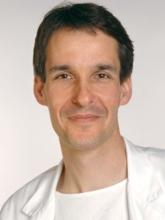
Christian Binggeli studied medicine at the University of Zurich and after graduation in 1999 took a research fellowship at the Department of Cardiology, Cardiovascular Research Division for a 2-year period and then trained in internal medicine at the local hospital near Zurich and after that was accepted a fellowship in cardiology at the University Hospital in the Department of Cardiology from 2002 and 2006. After receiving the board certification in cardiology, he was named Junior Consultant with a particular focus on arrythmias and interventional electrophysiology. Based on his scientific contributions in cardiovascular physiology and disease, he received the venia legendi (Habilitation) of the University of Zurich and the title of Private Lecturer in 2007. In 2009 he accepted a consultant position at the private hospital chain Hirslanden, in Zurich and Lucerne.
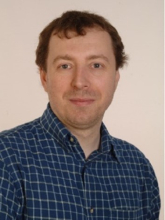
Blyszczuk Przemek studied biology in Krakow in Poland and then moved to the Center for Molecular Cardiology of the University of Zurich to work in the research group Cardioimmunology (head: Prof. Urs Eriksson) on molecular mechanisms of myocarditis. He published seminal work on inflammatory mechanisms of immune-mediated myocarditis. In 2019 he moved as research associate to the research division of the Department of Rheumatology (Prof. Oliver Distler) of the University Hospital Zurich.
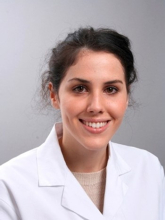
Nicole Bonetti studied Medicine at the University of Zurich and then trained in Internal Medicine at the Regional Hospital Baden, Switzerland. She then was accepted to the MD/PhD program of the University of Zurich and worked as a research fellow at the Center for Molecular Cardiology in the research group of Professors. Giovanni G. Camici and Jürg H. Beer. She published important papers on the molecular mechanisms of stroke. She then finished her training in internal medicine at Baden Hospital and is now training as a cardiology fellow at the University Heart Center in Zurich, Switzerland.
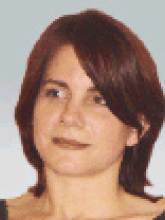
After studying pharmacy in Nancy (France), Chantal Boulanger continued her formation at the Mayo Clinic (USA) in cardiovascular biology. In 1988, she moved to Switzerland where she worked as a researcher in the Department of Cardiology at the University Clinic Basel. During this time, Chantal Boulanger published several important publications showing that the secretion of a protein causing hypertension was inhibited by nitric oxide but stimulated by oxidized lipids. Her publications are still one of the most cited papers in the prestigious medical journal Clinical Investigations. Later she accepted a senior research position at the Baylor Colleges in Houston, Texas (USA). Since the early 90’s she works at the Hôpital Lariboisière (INSERM) at the University of Paris, first in the role of research director (Directrice de Recherches) and since 2019 as Director of the Paris-Cardiovascular Research Center.
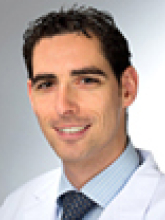
Alexander Breitenstein is a specialist in internal medicine and cardiology, and has additionally trained in congenital heart defects, cardiac surgery and cardiovascular research. From January 2011 to June 2012 he served as assistant physician and from July 2013 to December 2013 as a senior physician p.p. in the cardiology ambulatory, in the echocardiography laboratory and in the heart failure clinic at the Department of Cardiology, University Hospital Zurich. In 2014 he moved to the Arrhythmia Unit of St. Bartholomew's Hospital in London to Prof. Richard J. Schilling. He is now senior consultant in the Arrhythmia Unit of the Department of Cardiology of the University Hospital Zurich.
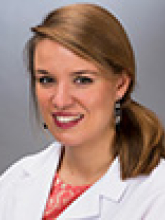
Sofie Brouwers studied medicine at the Vrije Universiteit Brussel (Belgium). After her graduation in 2011, she started a PhD at the Vrije Universiteit Brussel and Boston University as a fellow of the Research Foundation Flanders (FWO). Her doctoral research focused on arterial hypertension, and more specifically on the role of the AT2 receptor in the central regulation of blood pressure and renal hemodynamics. Upon completing her PhD, she continued her studies in Internal Medicine at the University Hospital in Brussels. In 2016, she joined the University Hospital in Zürich to pursue her Cardiology training, where she was active as the Chief Medical Resident for Cardiology. During her time in Zürich, she was actively involved in the coordination the Swiss amyloidosis register. Since November 2019, she works at the OLV Aalst hospital (Belgium) as a staff member in Cardiology.
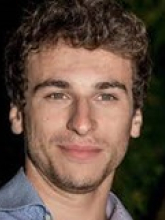
Francesco Bruno studied Medicine at the Università die Torino Faculty of Medicine and Surgery in Turin, Italy and spend with a SEMP (Swiss European Mobility Program) stipend a few months at the University of Biology and Medicine in Lausanne, Switzerland. He then undertook a medical residency in “Malattie dell’apparato cardiovascolare” at the Città della Salute e della Scienza, Division of Cardiology in Turin, Italy. In 2022 he was research fellow with clinical engagement in interventional cardiology at the Royal Brompton and Harefield Hospitals under the supervision of Professor Thomas F. Lüscher. Back in Italy he graduated in cardiology with a study on the use of an intraarterial percutaneous assist device (ImpellaR). He published several important studies in interventional cardiology, among them one together with the P.I.s of the SPUM-ACS registry.
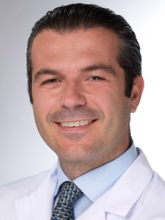
Giovanni Camici studied Biology at Queen Mary University of London, UK. In 2007 he obtained a PhD in cardiovascular physiology at the University of Fribourg in Switzerland. After this, he moved to Zurich to work as a postdoctoral fellow and then as a group leader at the cardio-vascular research division at the University of Zurich-Irchel. Under the leadership of Prof Thomas F. Lüscher. In 2014 he established and became director of the Center for Molecular Cardiology at the newly built University of Zurich Campus in Schlieren. In 2017 he became Assistant professor at the faculty of medicine of the University of Zurich where he still serves his duties. Over his career he won several prizes amongst which the “outstanding achievement award” of the European Society of Cardiology and published several articles in top journals such as EHJ, JACC and Circulation. He also filed several patents and participated in the organizations of several National and International congresses. On January 1, 2021 he was promoted to Professor at the University of Zurich.
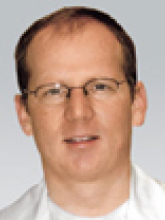
Rémy Chenevard studied medicine in Zurich and then joined Professor Georg Nolls’ research group. He received his training in internal medicine in Glarus and Lucerne. In 2006 he returned to the clinic of cardiology and served here as assistant physician. In 2009 he was promoted to the post of a senior physician at the Medical Clinic of Altstätten Hospital (for the region of Rheinthal Werdenberg Sarganserland). From 2010 to 2012 he worked as a senior physician at the Cantonal Hospital Frauenfeld, and then finally joined a private practice.
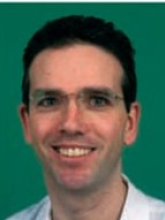
Roberto Corti studied medicine at the University of Zurich and then trained in internal medicine at the regional hospital in Bellinzona (Ospedale Cantonale di Bellinzona), Switzerland and thereafter moved to Zurich to work as a research fellow in cardiovascular research in the Department of Cardiology of the University Hospital for a 2-year period. He then trained in cardiology and received the Swiss Board in Cardiology. In 2002, he moved to the Mount Sinai Hospital, New York, to work with Professor Val Fuster on MRI and cardiovascular disease. Upon his return to Switzerland, he became Junior Consultant and later Senior Consultant in Cardiology and eventually head of interventional cardiology at the University Heart Center. In 2014, he moved to a private clinic (Hirslanden Clinic, Zurich, Switzerland). He received the venia legendi (Habilitation; Private Lecturer) at the University of Zurich in 2010 and was nominated Clinical Professor in 2016. His major scientific contributions were the elucidation of the effects of nutrients on the cardiovascular system, such as coffee and chocolate, as well as the evaluation of stem cell therapy after acute myocardial infarction.
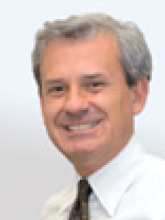
Francesco Cosentino studied medicine in Rome and then specialised in internal medicine. He served as post-doctoral fellow in anaesthesia and pharmacology research, and was head of the section of nitric oxide synthesis and tetrahydropbiopterin in endothelial function, at Mayo Clinic Foundation. Together with Professor Zvonimir Katusic he published a large number of notable studies. In 1993 he jointed Professor Thomas F. Lüscher’s cardiovascular research group at the department of cardiology, Inselspital in Bern, as a post-doctoral Fellow. He then served as a university assistant at Università la Sapienza in Rome and conducted cardiovascular research at the Institute of Physiology, University of Zurich. In 2004 he completed a clinical sabbatical at the Clinic of Cardiology, University Hospital of Zurich. In 2005 he was appointed Associate Professor of Cardiology at Università la Sapienza in Rome. Professor Francesco Cosentino still works part-time as head of a cardiovascular research group at the Institute of Physiology, University of Zurich. Thanks to the collaboration between Zurich and Rome, a large number of Fellows could be trained in molecular cardiology in Zurich and have several publications to their credit. Due to his work in Zurich, he was appointed Professor of Cardiology by the Karolinska Institutet and Universitetssjukhuset in Stockholm, Sweden, on December 1st, 2013.
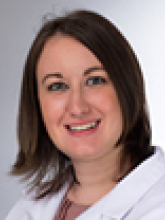
Sarah Costantino obtained his degree in Chemistry and Pharmacy in 2008 at University of Naples "Federico II". In December 2012 she received her PhD in Experimental Medicine at the Second University of Naples. Then she worked as a Fellow in cardiovascular research at the Institute of Physiology, University of Zurich, Switzerland, under the supervision of Prof. Francesco Cosentino and Prof. Thomas F. Lüscher. Her main research topics are epigenetic mechanisms underlying cardiovascular disease in diabetes and obesity. In 2013 she received the ESC Young Investigator Award in Basic Science at the Congress of the European Society of Cardiology. Sarah Costantino was then Research Assistant at the Cardiology Unit in the Department of Medicine of Karolinska Institutet, Stockholm (Sweden). From 2014 - 2021 she was postdoctoral fellow at the Center for Molecular Cardiology. She is now working at the Department of Cardiology of the University Hospital Zurich.
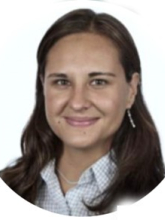
A native of Mexico where she studied Biology, she moved to Switzerland for her PhD under the leadership of Proffs. Roland Wenger and Christian M. Matter at the Institute of Physiology, Cardiovascular Research (Head: Prof. Thomas F. Lüscher) on modulation of scavenger receptors by hypoxia. After her successful promotion to a PhD, she worked as a postdoctoral fellow on rheumatoid arthritis in the Center for Molecular Cardiology (Chairman: Prof. Thomas F. Lüscher) which led to a well-received publication in Cardiovascular Research on “Molecular Mechanisms of Endothelial Dysfunction and Atherosclerosis in Rheumatoid Arthritis” in 2021. She now works in Germany with Fresenius GmbH as Scientific Affairs Manager.
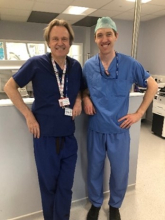
Allan Davies studied medicine in Australia and trained in internal medicine and cardiology thereof and received a Master’s degree in Public Health. In 2018, he moved to the Royal Brompton and Harefield Hospitals, thanks to a stipend by the Zurich Heart House and worked with Prof. Thomas F. Lüscher on coronary artery disease and acute coronary syndromes. He was essential in establishing a registry on acute coronary syndromes at Harefield Hospital (HEART-ACS). He published many important papers on refractory angina, microbiome as well as diabetes and cardiovascular disease. He also trained parttime with Dr. Rob Smith, Harefield Hospital, on Mitraclip procedures. In 2020, he returned to Australia and is currently consultant in interventional cardiology at the Medical Centre in Newcastle, New South Wales.
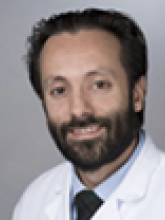
Dr. Andrea Denegri graduated in 2007 and achieved the Board Certification in Internal Medicine in 2013 under the supervision of Prof. Franco Dallegri, First Clinic of Internal Medicine, IRCCS - San Martino University Hospital, University of Genova, Italy. He obtained the Board Certification in Cardiology in 2017 at the University Hospital of Zürich under the supervision of Prof. Thomas Felix Lüscher. In 2018, he completed a PhD in Clinical and Experimental Internal Medicine at University of Genova, under the supervision of Prof. Claudio Brunelli and Prof. Pietro Ameri, discussing a Defense titled “Renal nerve denervation in resistant hypertension: the role of full four quadrant ablation technique and number of ablations”. He awarded a 2-years Fellowship for the Special Program University Medicine (SPUM) funded by the Swiss National Science Foundation, at the University Hospital Zurich in 2015, in 2017 a 1-year Fellowship in Interventional Cardiology (Medtronic) at the University Hospital Zurich under the supervision of Prof. Thomas Felix Lüscher working at Andreas Grüntzig Cardiac Catheterization Laboratories at the University Heart Center Zurich. He held the role of local principal investigator of an international, multicenter study, sponsored by the Swiss National Research Foundation, the CLEVER-ACS (Controlled Level of EVERolimus in Acute Coronary Syndrome, NCT01529554), a nested-in trial in the SPUM-Registry and of Consultant Cardiologist at the University Hospital of Zurich. In addition to his clinical work, Dr. Andrea Denegri was involved in many research projects on acute coronary syndromes, TAVI and renal denervation and published many papers as first author or co-author in prestigious medical journals and attended many important international congresses. His clinical and research interests are focused in coronary and structural interventional cardiology, resistant hypertension and cardiotoxicity from chemotherapeutic drugs.
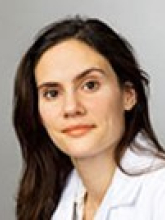
Dr Canestro studied exercise sciences at the University of Miguel Hernandez in Spain and later completed a MSc in Health and Human Performance at the same university. In 2015 she joined the Center for Molecular Cardiology to carry out her PhD focusing on the molecular mechanisms of stroke in aging as well as on age-dependent vascular stiffness. In 2019 after completing her PhD, she moved on to the Faculty of Kinesiology, University of Calgary, Canada, for a Post-doctoral fellowship and later to the University of Hong-Kong as Postdoctoral fellow. In 2021 she was awarded an Ambizione grand by the Swiss National Science Foundation and moved to the Center for Molecular Cardiology of the University of Zurich as research group leader.
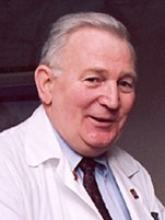
Denis Diederich, Professor of Nephrology and Medicine at the University of Kansas Medical Center, Kansas City, USA, spent in 1987-1988 a one year sabbatical in the Laboratory of Vascular Research at the Center for Education and Research, University of Basle, together with Prof. Thomas F. Lüscher and published vastly on endothelial function in human blood vessels (New England Journal of Medicine 1988), as well as in mice treated with cyclosporin (Journal of the American Society of Nephrology 1992). He returned to his hometown in 1988 and continued to work as a professor of medicine at the health center in Kansas City.

Yasuaki Dohi is Professor of Medicine at Nagoya University, Nagoya, Japan. He studied medicine in his hometown of Nagoya and then specialixed in internal medicine, specifically hypertension. In 1989 he joined Professor Thomas F. Lüscher’s research group which was in Basel at the time, and returned to his own university two years later. In Nagoya he worked as a specialist in internal medicine at the University Hospital, and was particularly interested in cardiovascular diseases, especially hypertension. In April 2015 Yasuaki Dohi became Professor of Medicine in Faculty of Rehabilitation Sciences, Nagoya Gakuin University.
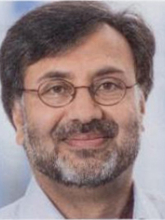
Raghvendra K. Dubey has studied at the Lucknow University, India, and completed his PhD in 1985. Thereafter, until 1994 he had several postdoc positions in the US and stayed as a visiting scientist at the Department for Vascular Research of the University Hospital Basel. From 1994 to 2010 he was assistant and associate professor at the University of Pittsburgh Medical Center, USA. In 2000 he became research director at the Division of Reproductive Endocrinology at the University Hospital Zurich and lecturer at the University of Zurich. Since 2007 he is associate professor and since 2014 professor for molecular reproductive endocrinology at the University of Zurich.
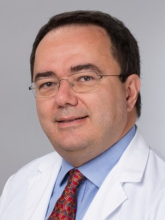
Firat Duru studied Medicine at Ankara University in Turkey and trained in internal medicine thereat. In 1996 he moved to the Department of Cardiology, University Hospital Zurich, Switzerland for further experience in cardiology, especially arrhythmias and devices and became an interventional electrophysiologist. In 2004 he was nominated assistant professor of Cardiology based on a donation of the Foundation for Cardiovascular Research – Zurich Heart House. Six years later, he was promoted to associate professor and head of the Arrhythmia Unit. His research interests focus on the pathophysiology and clinical presentation of the arrhythmogenic cardiomyopathy where he established a prospective registry and published vastly on the topic.
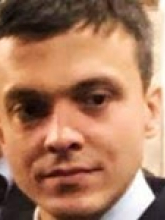
Fabrizio d’Ascenzo studied Medicine at the Università die Torino Faculty of Medicine and Surgery in Turin, Italy and He then undertook a medical residency in “Malattie dell’apparato cardiovascolare” at the Città della Salute e della Scienza, Division of Cardiology in Turin, Italy. In 2014-2015, he was a postgraduate at the Department of Cardiology, University Heart Center working clinically and in research with Proffs. Christian Templin and Thomas F. Lüscher. Upon his return to Torino as Ricercatore in interventional cardiology his led a series of collaborative projects on the clinical characteristics and outcomes of the Takotsubo syndrome, on dual antiplatelet therapy in patients receiving a stent and bioabsorbable scaffolds. He is now head of the cardiac catheterization laboratory at the University Hospital in Torino, Italy.
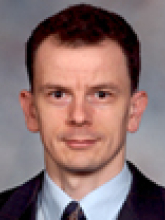
Livius d’Uscio has studied pharmacy in Bern from 1988 to 1994 and then joined the cardiovascular research division of the Department of Cardiology at Inselspital Berne, Switzerland. During his stay, he made seminal contributions to understanding of the role of circulating peptides including endothelin and angiotensin II in the control of blood vessel tone and pathogenesis of hypertension and submitted his work as a Ph.D. thesis in pharmacy at the University of Berne. For his work, he received first prize for the best PhD thesis of that year of the University of Berne. In 1997, he moved to the cardiovascular research division of the Institute of Physiology at the University of Zurich to continue his work. He published extensively in peer-reviewed journals on endothelial regulation of resistance arteries and their alterations in hypertension and hypercholesterolemia. In 1999, he joined Prof. Zvonimir Katusic’s vascular molecular biology laboratory in the Department of Anesthesiology at Mayo Clinic in Rochester, MN as a Research Fellow, and he has progressed to his current appointments as Associate Professor of Anesthesiology and Professional Associate in research. He has since continued his work on the role of GTP-cyclohydrolase I and tetrahydrobiopterin in vascular endothelium and he has performed pioneering research regarding alterations of vascular tetrahydrobiopterin metabolism in cardiovascular disease.
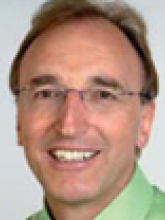
Franz R. Eberli is Chief cardiologist at the City Hospital of Triemli in Zurich. He was appointed chief cardiologist at Triemlispital on July 1, 2007. He studied medicine in Zurich and specialised in internal medicine and cardiology at the University Hospital of Zurich and at Boston University in the USA. During his research in the USA he was mainly focused on metabolic changes during ischemia and reperfusion. From 1994 on he worked as a staff physician in interventional cardiology at the Boston University Medical Center. In 1997 he became head of the cardiac catheter laboratory at the Clinic of Cardiology in Inselspital Bern, and in 2002 he became head of the Andreas-Grüntzig Cardiac Catheter Laboratories of the University Hospital of Zurich. During his term of service, cardiology was advanced in several sectors and was transformed into a large clinic. During this time, interventions for congenital heart defects and interventions in large vessels close to the heart were performed in large numbers in the field of interventional cardiology. Simultaneously, the 24-hour service for acute coronary syndromes was optimised and the system of a cardiologist being available round the clock was introduced. He is now senior consultant at the Triemli Hospital.
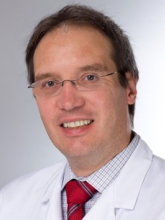
Frank Enseleit studied Medicine at Mainz University in Germany and obtained his M.D. for work on nitric oxide (Prof. Ulrich Förstermann). He then moved to Zurich to work in the research division of the Department of Cardiology of the University Hospital in the research group pf Prof. Georg Noll. He then trained in internal medicine and cardiology and eventually became consultant in cardiology in the heart failure unit thereat. In 2013 he obtained the venia legendi (Habilitation) at the University of Zurich. In 2018 he moved to a private practice in Wiesbaden, Germany.
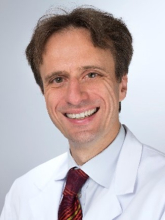
Urs Eriksson studied Medicine at the University of Zurich and trained in internal medicine and in-tensive care at the University Hospital in Basel. He then took a fellowship in myocarditis re-search at Toronto University Hospital and ever since performed seminal work on the molecular mechanisms of inflammation in myocarditis. Based on his scientific work, he was awarded a professorship of the Swiss National Science Foundation. In 2012 he moved as Senior Consultant to the University Heart Center at the University Hospital in Zurich and brought a research group focusing on myocarditis to the Center for Molecular Cardiology. In 2015, he was elected chief on internal medicine at the Regional Hospital Wetzikon near Zurich, Switzerland.
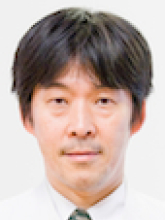
Masato Eto is Professor of International Research Center for Medical Education, University of Tokyo Graduate School of Medicine, Japan. During the stay in Zurich, he worked in Prof. Thomas F Luscher's Cardiovascular Research Team to identify signaling pathways leading to endothelial dysfunction from 1999 to 2004. Since coming back to Tokyo, he has continued endothelial research to identify the molecular mechanisms of endothelial cellular aging (ATVB 2008;28:1634, JACC 2009;53:2298, Endocrinology 2010;151:1822, ATVB 2010;30:2205). For teaching activities, Prof Eto is a program director of clinical clerkship for medical students at University of Tokyo. He is also a national committee member of Japanese Examination for Medical Doctor License and Japanese Model Core Curriculum for Undergraduate Medical Education.
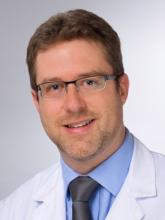
Andreas Flammer studied medicine in Basel and trained in internal medicine at the Regional Hospital in Burgdorf (Dr. Christoph Cottier). He then moved to the cardiovascular research division (Prof, Georg Noll) of the Department of Cardiology (Prof. Thomas F. Lüscher) of the University Hospital Zurich where he worked on nutrients such as chocolate on endothelial function in patients with cardiovascular disease and heart transplantation. He then trained in cardiology at the institution and moved later abroad to the Mayo Clinic (Prof. Amir Lerman) for a research fellowship on endothelial function. After his return to Zurich, he became consultant in heart failure and started research projects on the eye circulation in cardiac patients. He obtained the venia legendi in cardiology at the University of Zurich in 2014 and was promoted to clinical professor (Titular-Professor) in 2020. He is currently head of the heart failure unit at the Department of Cardiology of the University Hospital Zurich.
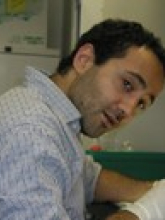
Pietro Francia studied medicine at the Sapienza University of Rome where he graduated in 2001. In 2005 he specialized in cardiology at the same University. Between 2002 and 2003 he worked as a research and clinical fellow at the University of Zurich and University Hospital of Zurich under the supervision of Prof. Thomas F. Lüscher, Prof. Firat Duru and Prof Francesco Cosentino, then research group leader at the institution.
Currently he works as senior physician in the electrophysiology unit of the Sant’ Andrea Hospital of the Medical Faculty at the Sapienza University of Rome, Italy.
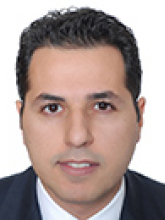
Dr. Antonio H. Frangieh received his medical degree from the St. Joseph University in Beirut, Lebanon in July 2010. He did his internal medicine and cardiology fellowships at the Hotel Dieu de France Hospital (university hospital) in Beirut and graduated in June 2015 from the Faculty of Medicine of the St. Joseph University in Beirut, Lebanon. In January 2014, Dr. Frangieh started a fellowship in interventional cardiology with Professor Thomas Lüscher at the University Hospital Zurich, which he completed at the end of January 2016 and graduated as interventional cardiologist from the Andreas Grüntzig Cardiac Catheterization Laboratories at the University Heart Center Zurich. In addition to his clinical work, Dr. Frangieh was involved in many research projects on acute coronary syndromes, bioresorbable scaffolds, Takotsubo cardiomyopathy, MitraClip and left atrial appendage occlusions, and published many papers as first author or co-author in prestigious medical journals.
In witness to his outstanding attributes, Dr. Frangieh was awarded in 2014, a prestigious Swiss Federal post-doctoral excellency scholarship award that provided him with full tuition for training in Switzerland.
Dr. Frangieh completed his medical training with an additional training focused on structural heart interventions mainly the transcatheter aortic valve implantation (TAVI) at the German Heart Center – Munich affiliated to the Technical University Munich, Germany. He then returned as a consultant in Cardiology at the Hospital de Dieu in Beirut Lebanon.
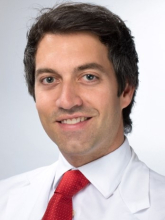
Oliver Gämperli studied medicine at the University of Zurich and received basic clinical train-ing in internal medicine at the Regional Hospital Uster (PD Dr. Esther Bächli) and obtained a fellowship in cardiovascular imaging at the University Hospital (Prof. Philipp A. Kaufmann), before training in cardiology at the University Heart Center (Prof. Thomas F. Lüscher). He then moved to London to the PET Unit of the Hammersmith Hospital under the leadership of Prof. Paolo Camici. Back in Zurich, he was promoted to consultant in interventional cardiology and received the venia legendi (Habilitation) in cardiology. He developed a particular interest in chronic coronary occlusions and organized with the Zurich Heart House and Prof. Alfredo R. Galassi a highly successful Live Course on CTO in Zurich. In 2015 he was appointed Assistant Professor in Cardioc Imaging and shortly after Prof. Thomas F. Lüscher moved to London resigned from that position and is now Consultant at the Heart Clinic, Hirslanden Group in Zurich, Switzerland
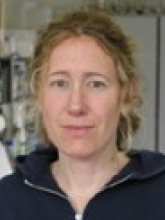
Catherine Gebhard joined the Cardiovascular Research Division of the Institute of Cardiology after her Medical studies in Germany and worked with Prof. Felix C. Tanner on the regulation of tissue factor by different physiological and biochemical stimuli. She later joined Prof. Paolo Camici at the PET Unit at the Hammersmith Hospital in London to work on nuclear cardiology, returned to Switzerland to work with Prof. Philipp A. Kaufmann in cardiac imaging at the University Hospital Zurich and then moved to the Montreal Heart Institute in Canada for interventional training. Upon her return to Zurich, she received an SNF Professorship in gender medicine in cardiology and worked both in the Department of Nuclear Medicine at the University Hospital as well as with her research group at the Center for Molecular Cardiology at the Schlieren Campus of the University of Zurich. Since 2022 she is Consultant of interventional cardiology at the Department of Cardiology of the Inselspital Bern.

Ivan O. Haefliger, MD, FEBO is professor in ophthalmology at the University of Basel. He is trained both as a basic scientist and clinician ophthalmologist. After having completed his residency in ophthalmology in Geneva, he has been trained in basic research, glaucoma, and oculoplastic surgery in Basel (Zentrum für Lehre und Forschung), London (Moorfields Eye Hospital), Miami (Bascom Palmer Eye Institute), and Belohorizonte (UFMG/Bresil). He has published numerous original and review papers in the ophthalmological literature and has served as reviewer for many prestigious journals in ophthalmology. He has been very much involved in different European associations. For many years he has acted as chairman of the section of ocular pharmacology and physiology of the European Association for Vision and Eye Research (EVER). He has also been chairman of the EBO Education Committee of the European Board of Ophthalmology (EBO). He is presently vice-president of the European Union of Medical Specialist (UEMS) section of ophthalmology. He is also working in his private clinic in Basel, with a special focus and emphasis on lacrimal and eyelid related issues.
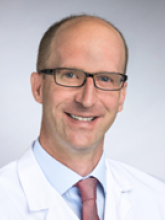
Laurent Haegeli studied medicine in Basel and Paris and trained as a cardiologist at the Cantonal Hospital Aarau, the University Hospital Zurich, the University Hospital Basel and the University Heart Centre Freiburg-Bad Krozingen. At the Royal Jubilee Hospital and the Victoria Heart Institute Foundation in Victoria British Columbia, Canada, he specialised in electrophysiology and interventional cardiology. In 2014 he was appointed senior physician in the Arrhythmia Unit of the University Heart Centre in Zurich (Prof. Thomas F. Lüscher). In 2018 he was nominated chief of cardiology at the Cantonal Hospital Aarau, Switzerland. Laurent Haegeli published vastly on cardiac rhythm disorders. As a result he has received the venia legendi (Habilitation) at the University of Zurich and was later professor of cardiology in 2021.
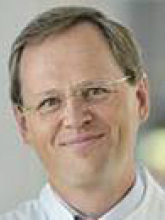
Walter Häfeli studied medicine in Basel (Switzerland) followed by further training as a medical specialist in inner medicine and clinical pharmacology at the Department of Inner Medicine at the State Hospital of Basel. Between 1990 and 1992 he conducted research at Stanford University (USA) investigating the regulation of venous tone in hand veins. In 1993 he returned to Switzerland where he assumed an Assistant Medical Director position under Prof. Lüscher. In 1995 he was appointed Professor in Clinical Pharmacology at the University Heidelberg (Germany) and Director of the University Clinic in Heidelberg.
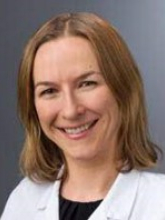
Bettina Heidecker studied Medicine in Innsbruck, Austria and then moved to the United States in cardiovascular research at the University of Miami and for clinical training to the University of California, San Francisco. In 2015 she joined the Department of Cardiology at the University Hospital Zurich and worked mainly in general cardiology with a special interest in heart failure and myocarditis where she published interesting work in peer reviewed journals on novel biomarkers, myocarditis (Circulation Heart Failure 2017) and sports among others. In 2018 she moved to the Charité in Berlin, Germany as consultant with a focus on myocardial diseases and heart failure. In 2020 she became lecturer at the Charité. In 2022, she authored an ESC Consensus Document on Post-Vaccination Myocarditis (Eur. J. Heart Fail 2022).
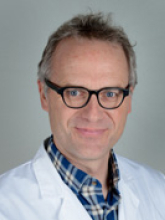
Head of the Department of Cardiology in the region of Rheintal Werdenberg Sarganserland. Jens P. Hellermann studied medicine in Mainz and was trained in internal medicine and cardiology at the University Hospital of Zurich. Following a stay at the clinical epidemiology department of Mayo Clinic from 2000 to 2002, he returned to the University Hospital of Zurich in 2003 to serve as deputy senior physician and then as senior physician at the Clinic of Cardiology. As a guide for scientific studies and dissertations he was able to utilise in Zurich the knowledge he had gained at the Mayo Clinic, and acquired his license to teach at university (Habilitation) at the University of Zurich in 2005. The same year he was appointed head of the department of cardiology in the hospitals of Rheintal (Altstätten, Grabs and Walenstadt). In 2006 the regional cardiology team was awarded the ALTANA research prize for an epidemiological study on the prevalence of severe heart failure in the Rheintal region. Since January 2015 Jens Hellermann is chairman of Internal Medicine at the Hospital Schiers (GR).
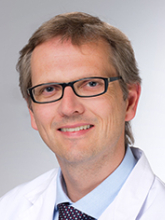
Matthias Hermann studied medicine in Göttingen and subsequently trained in Cardiovascular Research at the Institute of Physiology and the Department of Cardiology in Zurich. He has earned merits, especially in the field of heart failure clinically and scientifically. In March 2009 he was appointed chief physician of the cardiology department at Höhenklinik Wald in Zurich and continues as a guest senior physician to 20% at the Department of Cardiology in Zurich. In 2011 he habilitated at the Medical Faculty of the University of Zurich for Cardiology.
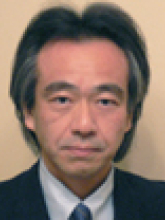
Keiichi Hishikawa studied at the University School of Medicine in Keio, Japan, and graduated at this institution in 1989. After his studies he became a resident at the Division of Internal Medicine of the University Hospital in Keio. In 1993 Dr. Hishikawa returned to the -University School of Medicine in Keio where he worked as a specialized resident and then moved to Switzerland in 1995 as Postdoctoral Research Fellow, initially at the University of Bern at the Department of Cardiology of the Inselspital and thereafter at the Cardiovascular Research Division of the Institute of Physiology of the University of Zürich. He worked mainly on the effects of pulsatile stretch in endothelial and coronary artery smooth muscle cells. He published seminal papers in Circulation und Circulation Research. In 1997 Dr. Hishikawa returned to Japan initially as a fellow and as of 1998 as an Associate Professor in Pharmacology at Teikyo University School of Medicine in Tokyo.
Since 2002 Keiichi Hishikawa is an Associate Professor at the Departement of Internal Medicine as well as at the Department of Clinical Renal Regeneration at the University of Teikyo, Japan. His research interests encompass regenerative medicine, stem cell biology as well as ES- and inducible progenitor cells.
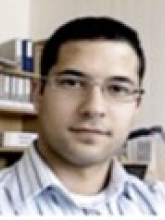
Erik W. Holy graduated in human medicine from the Medical University of Vienna. In September 2006, he joined the research group of the Clinic for Cardiology at the University Hospital Zurich where he worked under the direction of Prof. Thomas F. Lüscher and Prof. Felix C. Tanner until November 2010. As part of his research activities, he successfully completed his MD/PhD program in 2012 and published seminal papers on tissue factor (Journal Molecular and Cellular Cardiology 2010, European Heart Journal 2014, Thrombosis Hemostasis 2014, Journal of the American College of Cardiology 2017). Next, he continued his clinical training in internal medicine and cardiology at the Cantonal Hospital Baden and the University Hospital Zurich, where in March 2015 he was promoted to consultant physician (Oberarzt) at the Department of Cardiology. Since 2022 he is senior physician and vice-Chairman of the Department of Angiology at the University Hospital of Zurich.
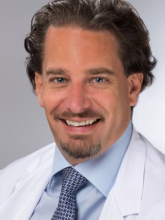
Johannes Holzmeister studied medicine in Berlin, Germany and was a fellow in cardiovascular research at the German Heart Center thereafter. He then moved to the Department of Cardio. logy (Prof. Thomas F. Lüscher) at the University Hospital Zurich to train in cardiology. He developed a particular interest in devices and started the implantation program of pacemakers, ICD and CRT at the Department. He then became consultant in the Arrhythmia Unit (Prof. Firat Duru). He designed and organized the Echo-CRT trial funded by Biotronik that eventually was published in the New England Journal of Medicine and was crucial in defining the QRS complex width that would be suitable for a CRT implantation. He then started his own company to study Urodilatin in heart failure with reduced ejection fraction which unfortunately was neutral, but again published in the New England Journal of Medicine. In 2020 he founded a new company DINAQOR, based in the Schlieren Campus in Zurich, aiming at developing a gene therapy for hypertrophic cardiomyopathy.
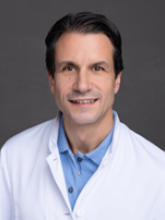
David Hürlimann studied medicine at the University of Zurich and joined the cardiovascular re-search division of the Department of Cardiology in 2000 and published highly cited research on the effects of rheumatoid arthritis on endothelial function and its reversal by antibodies against tumor necrosis factor. He then trained in the Department of Cardiology as a Clinical Fellow from 2002-2006 and became Junior Consultant in Echocardiography and Devices, thereafter. Based on his scientific work, he received in 2011 the venia legendi (Habilitation) of the University of Zurich. In 2014 he moved as a consultant into a private clinic (Heart Clinic, Hirslanden Group. Zurich, Switzerland).
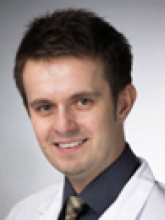
Milosz Jaguszewski completed his medical studies in Gdansk, Poland. In 2007 he began his training in internal medicine and cardiology with a focus on cardiac intensive care and invasive cardiology at the University Hospital of Gdansk. In 2010 he came to the University Heart Center Cardiology of the University Hospital Zurich. There he worked as an assistant physician and research fellow in two multicenter studies: Inflammation and acute coronary syndrome (ACS) - novel strategies for prevention and clinical management and Takotsubo International Registry. In 2011 he received a research grant of the European Society of Cardiology and Interventional and in 2013 the Fellowship of the European Association of Percutaneous Cardiovascular Interventions (EAPCI).
His clinical interests and research interests are in the field of pathophysiology and biomarker detection of cardiomyopathies as well as interventional cardiology with special focus on the optical coherence tomography, drug-eluting stents, bio-absorbable vascular scaffolds and PCI in ACS. From 2014-2017 he worked as clinical research assistant in the Charité cardiology department of the University of Berlin Benjamin Franklin Campus. Since 2017 he is attending physician at the cardiac catheterization laboratory of the university of medicine in Gdansk, Poland.
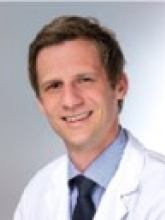
Philip Jakob studied Medicine at the University of Zurich and became a research fellow at the Research Division of the Institute of Physiology in 2012 to study the effects of heart failure, both due to dilated and ischemic cardiomyopathy, on the biology and dysfunction of progenitor cells. He then trained as a fellow in Cardiology at the University Heart Center Zürich in interventional cardiology. In 2014 he moved with Ulf Landmesser from Zurich to the Benjamin Franklin Campus, Charité Berlin to further train in cardiology and to continue his research. In 2018 he returned to the University Heart Center in Zurich as a junior consultant in interventional cardiology and is now senior consultant in cardiology at the Cantonal Hospital Chur, Switzerland with a part time research commitment at the Department of Cardiology, University Hospital Zurich.
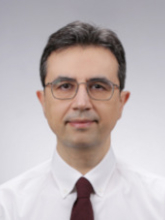
Bilgehan Karadag was born in 1973 in Tekirdag, Turkey. In 1997 he received his medical degree from Marmara Faculty of Medicine. In 1998 he ranked in both clinical and basic sciences among the first 10 of over 10 000 medical doctors in the Turkish Medical Residency Entrance examination. Subsequently, he finished his cardiology fellowship in Istanbul University Cerrahpasa School of Medicine Department of Cardiology I in 2002. Afterwards, he attended a fellowship between 2002 and 2004 in interventional cardiology at the University Hospital Zurich under Prof. Thomas F. Lüscher. 2004 he was appointed staff interventional cardiologist at the Istanbul University Cerrahpasa School of Medicine. Bilgehan Karadag is the author of over 30 articles and 5 book chapters. His clinical and research fields of interest include acute coronary syndromes and interventional cardiology. He was working as a staff physician in interventional cardiology at the Istanbul University Cerraphasa School of Medicine until recently and has been appointed Professor of Cardiology at the Istanbul University Cerrahpasa School of Medicine.
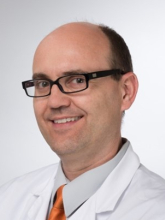
Philipp Kaufmann studied medicine at the University of Zurich and then trained in internal medicine and cardiology (Prof. Hans-Peter Krayenbühl and Prof. Otto M. Hess) at the then Medical Policlinic of the University hospital Zurich (Prof. Walter Siegenthaler). He then went abroad to train in nuclear cardiology at the Hammersmith Hospital in London (Prof. Paolo Camici) and returned to Zurich to finish his training and receive the board certification in cardiology and in nuclear medicine. He then received his venia legend in both specialities at the University of Zurich. Thanks to a SCORE Fellowship of the Swiss National Science Foundation, he worked in both nuclear Medicine (Prof. Gustav von Schulthess) and cardiology. He was highly productive and published vastly in myocardial perfusion imaging and hybrid imaging with CT and PET. In 2016 he was nominated full professor and Director of Nuclear Medicine at the University and the University Hospital Zurich
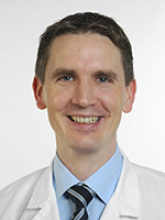
Roland Klingenberg, MD FESC studied medicine at the universities of Tubingen and Freiburg (thesis) with clinical training at Baylor College of Medicine, Houston, Texas and University of South Florida, Tampa. Subsequently he did his residency in internal medicine (board certificate) with a focus on cardiovascular medicine at the University Hospital Heidelberg (Prof. Dr. H. A. Katus). He continued with a postdoctorate period in experimental vascular inflammation at Karolinska Institute, Stockholm with Prof. Dr. G. K. Hansson. Acceptance into the Special Programme University Medicine - Inflammation and Acute Coronary Syndromes (SPUM-ACS) funded by the Swiss National Science Foundation enabled him to pursue a variety of projects with a focus on inflammation and biomarkers in ACS patients in close collaboration with colleagues at four university centers in Switzerland. He obtained his board-certification in cardiology (FMH) following a residency at University Hospital Zurich and was attending physician in Acute Cardiology from 2013 - 2015 (Prof. Dr. T. F. Lüscher) with habilitation in 2015. Early 2015 he moved to the Kerckhoff-Klinik in Bad Nauheim (Prof. Dr. C. W. Hamm) for further training in Interventional Cardiology and has been working there as attending physician until today.
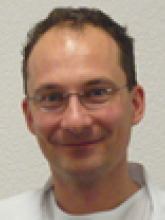
Richard Kobza studied at the University of Zurich until 1995, receiving his doctorate in 1996. The specialist training in Internal Medicine (2002) and Cardiology (2004) took place at the District Hospital Muri (AG), the Lucerne Cantonal Hospital, University Hospital Zurich and the Heart Centre of the University of Leipzig. At the Heart Centre of the University of Leipzig, he was trained as an interventional electro-physiologist. After his return to Switzerland he continued the research which he began there in the field of heart rhythm disturbances.
On 1.1.2010 he was appointed Head Physician at Lucerne Cantonal Hospital. His clinical focus is in interventional treatment of cardiac arrhythmias. In March 2011 the University of Zurich awarded Richard Kobza the Venia legendi as a lecturer in the field of Cardiology.
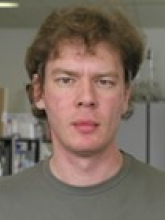
Dr. Alexej Kouroedov studied at the University of Nowosibirsk in Russia and worked in the Cardiovascular Research Division of the Institute of Physiology from 2002 – 2007 where he worked on Inhibition of protein kinase C beta to prevent foam cell formation via reducing scavenger receptor A expression in human macrophages (Circulation 2008) among other projects. He then trained in clinical medicine at different institutions in Switzerland and now works in private practice in Zurich.
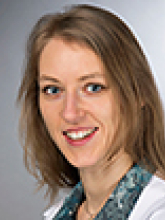
Nicolle Kränkel graduated in biotechnology and completed her scientific doctorate at the Heart Center Leipzig. Supported by the Marie Curie Fellowship, she investigated during her postdoctoral at the University Bristol (2006 - 2009) the role of bradykinin receptors in angiogenesis. In Zurich she continued her research on this topic with the support of the "Ambizione" Fellowship of the Swiss National Science Foundation. Since October 2014 Mrs. Kränkel is a junior group leader at the Charité in Berlin. Mrs. Kränkel deals there with the interactions between inflammation and regeneration in vascular disease.
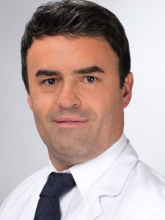
Dr. Nasmi Krasniqi studied Medicine at the University of Zurich during which he worked under the supervision of Dr. Zhihong Yang, then research group leader at the Cardiovascular Research Division of the Institute of Physiology at the University of Zurich-Irchel, in basic research. After his graduation he trained in surgery and internal medicine at the regional hospitals in Baden, Bülach and Winterthur, then moved to the Department of Cardiology at the University Hospital Zurich under the leadership of Prof. Thomas F. Lüscher to train in Cardiology and in Electrophysiology and Arrhythmias. He deepened this with an exchange fellowship under Professor Josep Luis Mont at the Hospital Clinic, University of Barcelona, Spain. Thereafter he moved to the Hospital in Wetzikon as consultant and then senior consultant in cardiology involved mainly in devices and ablation of rhythm disorders. He now works at the Herzklinik Kreuzlingen.
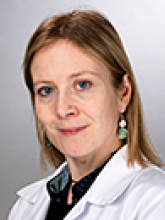
Adelheid Kratzer has worked during her PhD on nuclear receptors, especially liver X receptor, and its impact on atherosclerosis, especially on macrophages. Thereafter she changed her focus towards one of the risk factors of cardiovascular disease, namely smoking, specifically passive smoking. Theses studies led her interest towards immunology, inflammation and inflammatory signaling and back to cardiovascular research as atherosclerosis is a chronic inflammatory disease. Having started her second Postdoc in Prof. Ulf Landmessers research group at the Center for Molecular Cardiology in Zurich in July 2012 she started focusing on the differences in Caspase-1 recruiting inflammasomes, their activation and regulation in monocyte subgroups from stable and acute coronary artery diseases patients. Here, she also started looking into the impact of microRNA as well as high density lipoprotein (HDL) on the regulation and activation of these subgroups. In this respect, she also tried to set up a screening for miRNA and mRNA targets within the different monocyte subgroups using next generation sequencing technology with the support of the functional genomics center at the University of Zurich (FGCZ). In the future, she plans to investigate gender differences in this novel way of target search. Additionally, she is trying to decipher the impact of protease inhibitors on the pro- /anti-inflammatory effects of HDL and possible implications in the treatment of CAD. Finally, she is also working on a humanized mouse model in order to study the impact of lipoproteins on the formation of monocyte subgroups. She also has also successfully set up collaborations with companies, for whom we measure HDL-mediated NO release. Since October 2014 she is working as a postdoctoral fellow in Prof. Landmesser's group at the Charite Campus Benjamin Franklin in Berlin.
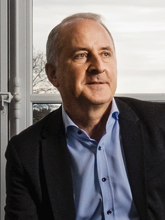
Christoph Küng studied Pharmacy at the University of Basel, Switzerland. In 1992, he obtained his doctoral degree (PhD) by the University of Basel with work on endothelial dysfunction in hypertension performed at the Division of Clinical Pharmacology (Prof. Thomas F. Lüscher) at the Center for Education and Research and the University Hospitals Basel. He published seminal papers on the effects of aging and hypertension on endothelial function (Hypertension 1995, Journal Cardiovascular Pharmacology 1995). In 1993 he moved to pharmaceutical industry and worked with different companies before joining SwissMedic in Bern as Head of Division.
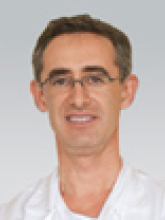
David Kurz is Head of the Department of Cardiology at Triemli Hospital. From 2004 to the end of 2008, 20 per cent of his working hours consisted of serving as head of a research group at the Institute of Physiology. On 27th October 2008 he held his inaugural lecture on "When cells change: relevant for age-associated cardiovascular disease?" in the assembly hall of the University of Zurich.
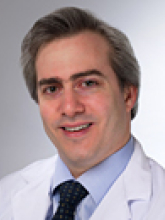
Specialist in Internal Medicine and Cardiology trained at Emory University School of Medicine in Atlanta. From 2007 to 2014 he was Director of Coronary Care and Chest Pain Unit as well as Medical Director of Interventional Cardiology focusing acute cardiology. In 2012 he received the Frederick Goetz price of the University of Zurich for his research on HDL cholesterol. In the winter semester 2014/2015 Ulf Landmesser was appointed Professor of Cardiology and Director of the Medical Clinic Cardiology - Pulmonology - Angiology of the Charité - Universitätsmedizin Berlin and the University Hospital Benjamin Franklin.
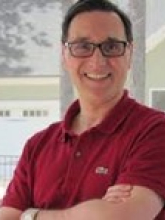
Markus Lang studied Pharmacy at the University of Basel, Switzerland. He obtained his doctoral degree (PhD) of the University of Basel in 1992 for his work on endothelial dysfunction performed at the Division of Clinical Pharmacology of the University Hospitals thereof (Head: Prof. Thomas F. Lüscher) at the Center for Education and Research of the University and the University Hospitals Basel. In 1993 he moved to pharmaceutical industry. He is now Senior Director, Brand Safety Lead at United Therapeutics Corporation in Raleigh-Durham-Chapel Hill Area, USA.
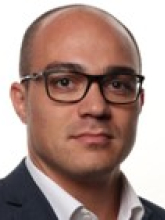
Lucal Liberale studied medicine at the Univerisità di Genova in Italy and trained in internal medicine thereat. He then moved for a postdoctoral research fellowship to the University of Zurich, Center for Molecular Cardiology to work in basic cardiovascular research under the leadership of Prof. Giovanni G. Camici. He published well cited work on the molecular mechanisms of ischemic stroke and on Jcad, a novel endothelial protein interfering with endogenous fibrinolysis (European Heart Journal 2022). In 2021, he returned as researcher to the Division of Internal Medicine at the University hospital in Genova under the leadership of Prof. Fabrizio Montecucco.
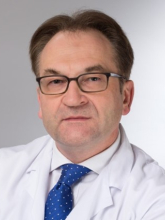
Willibald Maier studied medicine at the University of Munich and then worked in cardiac surgery at the German Heart Center in Munich and in Berlin before moving back to Munich to train in cardiology (Prof. Werner Rudolph). He then accepted a position as research fellow at the “Inselspital” (University Hospital) Bern to train further in interventional cardiology under the leadership of Prof. Bernhard Meier. In 1998 he moved to the Department of Cardiology at the University Hospital Zurich (Prof. Thomas F. Lüscher) as consultant in interventional cardiology. He worked on inflammation in acute coronary syndromes and published seminal papers in Circulation 2005 and the European Heart Journal 2007 and 2010. In 2016 he became senior consultant. Sadly, he died in 2021 of his malignant disease.
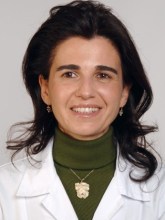
Costantina Manes studied Medicine in Bologna Italy and did her postgraduate training in Harvard and the Medizinische Hochschule Hannover before moving to the University Heart Center, Department of Cardiology (Prof. Thomas F. Lüscher) at the University Hospital Zurich in 2007 as a junior consultant in imaging (e.g. echocardiography and MRI) where she was involved both in the clinical service as well as research. In 2014 she moved with her husband Ulf Landmesser to the Medical Clinic Cardiology - Pulmonology - Angiology of the Charité - Universitätsmedizin Berlin and the University Hospital Benjamin Franklin in Belin, Germany.
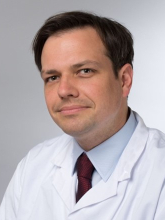
Robert Manka studied medicine in Bonn and trained in internal medicine and cardiology. He then took a research fellowship at the Institute of Biomedicine of the ETH (Prof. Peter Bösiger) and returned to Bonn for further clinical training, but returned to Zurich, first as research fellow with a double appointment at the ETH (Prof. Sebastian Kozerke) and the Department of Cardiology of the University Hospital (Prof. Thomas F. Lüscher). He then trained in interventional cardiology and simultaneously build an MRI service at the University Hospital in collaboration with the Department of Radiology (Prof. Jürg Hodler). He currently holds a double appointment in radiology and cardiology as senior consultant. In 2014 he received the venia legend in cardiology at the University of Zurich and was promoted to Clinical Professor in 2020.
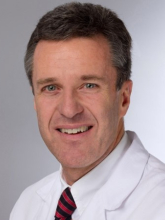
Christian Matter studied medicine in Zurich and trained in internal medicine and cardiology (Prof. Hans-Peter Krayenbühl and Prof. Otto M. Hess). He then trained abroad in vascular biology at Harvard Medical School. He returned to the Department of Cardiology of the University Hospital Zurich (Prof. Thomas F. Lüscher) in 1998 and worked as a research fellow in cardiovascular research at the Institute of Physiology with a parttime commitment in outpatient cardiology at the hospital. He was then promoted consultant with a generous protected research time and clinical activity in the echocardiography laboratory (Prof. Felix C. Tanner). He was promoted to research group leader at the Center for Molecular Cardiology in atherosclerosis research and was consistently supported by the Swiss National Science Foundation. In 2007, he received the venia legend of the University of Zurich and was promoted clinical professor (Titular-Professor) in 2013. He left the Center for Molecular Cardiology in 2022 and is currently head of translational research at the Department of Cardiology of the University Hospital Zürich.
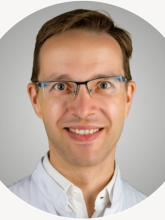
Martin Mayer studied medicine in Hannover, Germany and then moved as research fellow to the Department of Cardiology, University Hospital Zurich (Director: Prof. Thomas F. Lüscher; Supervisor: Prof. Ulf Landmesser), then trained in internal medicine at the Cantonal Hospital Frauenfeld (Prof. Beat Frauchiger) and then returned to University Hospital Zurich for a fellowship in internal medicine (Director: Prof. Edouard Battegay) and later cardiology (Director: Prof. Thomas F. Lüscher). In 2016, he was promoted junior consultant in internal medicine at the Cantonal Hospital Frauenfeld (Prof. Beat Frauchiger) and in 2017 junior consultant in echocardiography Department of Cardiology, University Hospital Zurich (Director: Prof. Thomas F. Lüscher; Head of echocardiography: Prof. Felix C. Tanner). Since 2021 he works as a consultant at the Heart Clinic Lucerne and the St. Anna Hospital in Lucerne.
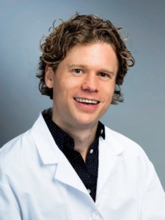
Mario Merlini studied Biopharmaceutical Sciences at Leiden University in the Netherlands. After that in 2011 he obtained his PhD at the Neuroscience Division of Psychiatry Research, University of Zurich, Switzerland. Next he moved to the USA (Gladstone Institute of Neurological Disease, University of California, San Francisco) until 2014 sponsored by his own Swiss National Science Foundation grant. After this experience he returned to Switzerland for 2 years where he worked as a senior fellow at the Institute of Regenerative Medicine and at the center for molecular cardiology. Currently he works as a Junior Team Leader on “Neurovascular Dynamics in Neuropsychiatric Disorders” at the University of Caen in France.
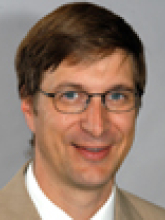
Peter Meyer completed his medical studies in Basel in 1987 and followed with a year of speciality training in Internal Medicine. Until 1993 he undertook speciality training in Ophthalmology and Ophthalmic Surgery at the Eye Clinic of the University of Basel. Between 1991 and 1994 he worked in basic research at the University Hospital Basel within a Swiss National Foundation project under Professor Lüscher about ophthalmic vascular physiology.
Peter Meyer developed a novel perfusion system in animal experiments for the evaluation of ocular microcirculation. With this, different substances and drugs that are of significance to ophthalmic circulation could be tested. The results built the foundation of his postdoctoral lecture qualification (2001; „Untersuchungen an isolierten Blutgefässen und am perfundierten Auge – ein Beitrag zur Physiologie der okulären Perfusion“).
In 1995 Peter Meyer undertook further speciality training under Professor Daicker at the Eye Hospital in Basel and took over direction of the department after he retired. In 1998 he absolved further speciality under Professor Naumann at the Clinic Erlangen in ophthalmic pathology and oncology for ophthalmology. Besides the direction of the Department of Ophthalmic Pathology, Peter Meyer is also clinically active and undertakes conciliar oncologic consultations.
In 2008 Peter Meyer became associate professor of the University of Basel. His current research activities include neurodegenerative diseases of the optic nerve, especially glaucoma, with basic research on meningothelial cells of the optic nerve sheath, as well as clinical pathological studies with eye tumours.
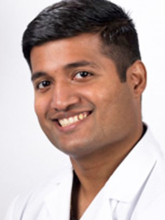
Melroy Miranda studied biology at the University of Mumbai, India and moved to the at the Center for Molecular Cardiology at the Schlieren Campus of the University of Zurich for his PhD working on the effects of Sirt1 on PCSK9, lipids and plaque formation leading to a highly cited paper on the effects of a SIRT1 activator on atherosclerosis in the mouse (Supervisor: Prof. Christian M. Matter). He then was offered a postdoctoral fellowship where he continued his work on SIRT1 under the leadership of Prof. Thomas F. Lüscher. In 2017 he founded a start-up company focusing on the development of novel therapeutics in his area of interest. Unfortunately, his start-up did not find appropriate funding in time and in 2021 he returned to his home country India for further professional activities.

Pierre Moreau studied pharmacy at the University of Montreal (Canada). Subsequently he engaged in basic research. From 1994 to 1996 he was involved in cardiovascular research at the “Insel” Hospital in Bern (Switzerland). He conducted an impressive number of research projects investigating the remodeling of small arteries under experimental hypertension. He published his results in reputable scientific journals such as Circulation, Stroke und Hypertension. In 1997, Pierre Moreau returned to Montreal where he was appointed Professor of Pharmacy. Later, he was promoted to sub-dean at the faculty of pharmacy at the University of Montreal.
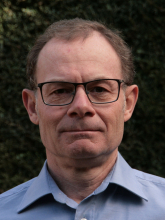
Eduardo Nava studied at the Autonoma University of Madrid, Spain, where he completed his degree in Medicine as well as a PhD with the doctoral dissertation In vitro study of the internal carotid system. In 1990, he continued the scientific career as a post-doctoral fellow within the framework of the prostaglandin and nitric oxide research leader, Prof. S. Moncada, by then at the Wellcome Research Labs in London, UK. In 1993, he was recruited by Professor Thomas F. Lüscher at the University Hospital Berne where they studied the role of nitric oxide in high blood pressure and developed several techniques for the determination of nitric oxide synthase in the heart and resistance vessels of hypertensive animals. In 1995 he returned to Spain at the University of Murcia with prof. Salazar to keep on the research in the field of the biology of nitric oxide in hypertension, aging and septic shock.
In 1999, Dr. Nava was appointed as a Lecturer in Physiology at the University of Castilla-La Mancha in Spain and in 2019 he was appointed as a professor in this university.
His current research includes the role of perivascular adipose tissue in microvascular function in metabolic syndrome and hypertension as well as the paracrine roles of perivascular adipose tissue in the control of vasomotion.
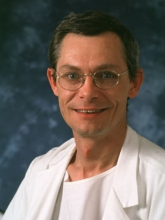
Georg Noll studied medicine at the University of Basel and trained in internal medicine and cardiology at the University Hospital of the institution. In 1989 he became a Junior Consultant in the Outpatient Department of Internal Medicine (Prof. Ulrich Dubach), thereof, and then joined the Vascular Physiology Laboratory of the Center for Education and Research under the guidance of Prof. Thomas F. Lüscher. In 1992, he received a stipend from the Swiss National Science Foundation, as a senior researcher (SCORE Grant) and moved with Prof. Thomas F. Lüscher to Bern, in 1993. In Bern, he built a cardiovascular physiology laboratory focusing on endothelial and sympathetic nerve function, using microneurography. He published seminal work on sympathetic nerve traffic in offsprings of hypertensive patients and the effects of cardiovascular drugs on sympathetic nerve traffic (Circulation 1996, Circulation 1997). In 1997, he moved to the University of Zurich, Department of Cardiology, to become Senior Consultant. He continued to run his clinical research group the Department of Cardiology and published important work on cardiovascular function, heart failure and transplantation. In 2012, he was nominated associate professor of cardiology and vice-chairman of the University Heart Center. In 2014, he moved to a private clinic as a consultant in cardiology (Heart Clinic, Hirslanden Group, Zurich, Switzerland).
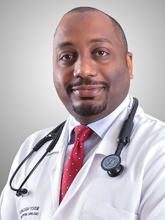
Dr. Nooraldaem is a board-certified consultant cardiologist with expertise in interventional cardiology. He completed his internal medicine and cardiology training in Salmaniya Medical Complex-Bahrain, and subsequently became certified with the Arab Board of Internal Medicine and the Royal College of Physicians (UK). He further pursued fellowships in adult cardiology and interventional cardiology at Zurich University Heart Centre and Andreas Gruentzig Catheterization Laboratories in Switzerland under supervision of Prof. Thomas Lüscher (January 2016 - December 2018).
He now holds the position of Deputy Head of the Cardiac Catheterization Department at the Mohammed Bin Khalifa Specialist Cardiac Centre, Bahrain's sole cardiac center where more than 3500 coronary and structural percutaneous procedures are carried out annually.
Dr. Nooraldaem’s clinical practice focuses on intervention for chronic total occlusion (Course director of Go-CTO Bahrain course) and complex high-risk and indicated PCI (CHIP). He is actively involved in research and his interest areas include coronary imaging & physiology.
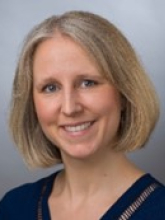
Stefanie Nusser-Stein obtained her Diploma in Biology in 2008 from the University of Tübingen, in Germany. From 2008 to 2012 he conducted her PhD under the supervision of Prof. Alex Hajnal at the Institute of Molecular Life Sciences at the University of Zurich working on C. elegans development. In between maternity breaks she worked as Research Associate at ExcellGene in Monthey, Switzerland, before joining the Center for Molecular Cardiology as postdoctoral fellow from 2017 to 2019, working under the supervision of Sokrates Stein. During her postdoctoral fellowship she studied the role of the hepatic nuclear receptors NCOR1 and PROX1 in atherosclerosis. Between 2019 and 2021 she worked as Clinical Trial Coordinator in the Department of Hematology at the University Hospital Zurich, and then joined Abbvie as Clinical Research Associate in 2021.
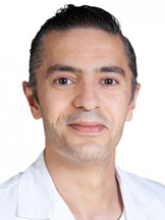
Slayman Obeid studied medicine in Beirut, Lebanon and trained in internal medicine and cardiology thereat. In 2012 he moved to Switzerland to train in interventional cardiology at the University Heart Center in Zurich (Prof. Thomas F. Lüscher). He learned fast and became an independent operator and eventually junior consultant in 2014. He was heavily involved in clinical re-search analyzing datasets of the SPUM-ACS registry and published seminal papers on novel biomarkers and clinical outcomes such as trimethylaminoxide (TMAO; European Heart Journal 2017) and trimethyllysine (TML; European Heart Journal 2019) among many others. In 2020 he moved as a senior consultant to the Kantonsspital Aarau to work as an interventional cardiologist and continued to publish on outcomes of acute coronary syndromes. In 2023 he moved as a consultant to the Cantonal Hospital Liestal as interventional cardiologist.
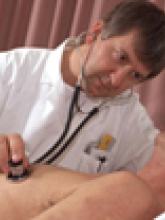
Erwin Oechslin studied medicine in Zurich and then specialised in internal medicine and cardiology. This was followed by a two-year stay at the University of Toronto, where he focused on congenital defects in adults. After returning to the Clinic of Cardiology at the University Hospital of Zurich he was nominated Deputy Head of the Department and established, with immense commitment and competence, a consultation service for congenital defects. Simultaneously he worked at the echocardiography laboratory under Professor Rolf Jenni. In 2005 he was appointed Associate Professor of Cardiology and Director of the Program for Congenital Heart Defects in Adults by the University of Toronto, and was invited to work there.
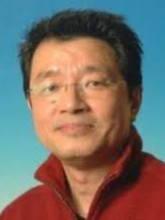
Barry Oemar, a native of Indonesia, studied medicine at the Medizinische Hochschule Hannover and trained in Pediatrics, but obtained great knowledge in molecular biology. He eventually received the venia legendi (Habilitation) at the Medizinische Hochschule Hannover in pediatrics. In 1992 he joined the Vascular Physiology Laboratory (Prof. Thomas F. Lüscher) at the Center for Education and Research at the University of Basel to work on the molecular mechanisms of atherosclerosis. He published seminal papers on differentially expressed genes in human atherosclerosis, such a human connective tissue growth factor, and on nitric oxide expression. In 1994 he moved to pharmaceutical industry and is now senior director at Pfizer, Inc..

Sara Oppi received her Bachelor and Master’s in biology degrees from the Università Statale di Milano in 2013 and 2016, respectively. In 2016 she joined the Center for Molecular Cardiology at the University of Zurich to conduct her PhD under the supervision of Sokrates Stein. During her PhD she demonstrated that macrophage NCOR1 regulates atherosclerosis progression in mice and likely exerts similar functions in human plaques. She received several prices for her work, which was published in the Eur Heart J. After completing her PhD in 2020, Sara first joined Roche Diagnostics International as a Clinical Science Intern, and then MSD as Clinical Data Manager in 2021, where she is currently pursuing her career in clinical trial management.
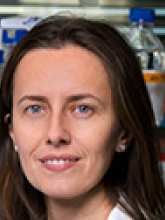
Elena Osto is a physician scientist. She trained as MD and board-certified cardiologist at the University of Padova, Italy, where she also obtained a Ph.D. in cardiovascular science (2007-2010). Her research focuses on the pathophysiology of vascular dysfunction and atherosclerosis in dysmetabolic conditions such as obesity and type 2 diabetes mellitus. Her research projects explore the multi-organ crosstalk in cardio-metabolic disease, combining a multidisciplinary approach with a strong translational aspect. Elena Osto was awarded prestigious career grants (“Forschungskredit”, a Fellowship of the University of Zurich; first the "AMBIZIONE" followed by the “PRIMA” Fellowship of the Swiss National Science Foundation, which allowed her to establish her independent research group in 2015. Dr. Osto is the Head of the research group on Cardio-metabolic disease at the Institute of Clinical Chemistry (University and University Hospital of Zurich) and is affiliated with the Laboratory of Nutritional Research (ETH Zurich). Her group maintains successful collaborations with the Institute of Veterinary Physiology (University of Zurich, led by Prof. Dr. Thomas Lutz), the Department of Cardiology (University Hospital of Zurich, led by Prof. Dr. Frank Ruschitzka) amongst others. Dr. Osto has earned merits and awards in the field of cardio-metabolic disease for instance the Cardiovascular Biology Prize of the Swiss Society of Cardiology in 2009 and 2015; the Swiss Lipid Research Award of the Working group on Lipids and Atherosclerosis (Swiss Atherosclerosis Association) in 2016; the Research Award of the Union of Vascular Societies of Switzerland and the Scholar of the Italian Society of Cardiology in 2018. In May 2018 the University of Zurich awarded Elena Osto the Venia legendi as senior lecturer in the field of Cardiology. She has received the title of Fellow and is currently also Nucleus Member of the Working Group on Atherosclerosis and Vascular Biology of the European Society of Cardiology. In June 2023 she was appointed Professor and Director of Applied Physiology at he University of Graz, Austria.
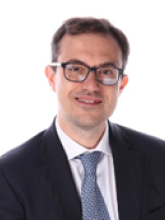
Francesco Paneni obtained his MD degree in 2006 and then started his clinical training in Cardiology at the University of Rome “Sapienza”. In July 2011, he took his specialty in Cardiology while in 2014, he obtained a Ph.D. in Experimental Medicine at the University of Rome “Sapienza”. From 2011 to 2013 he worked as Research Associate in the Cardiovascular Research team of Prof. Luscher at the University of Zurich, Switzerland. From 2014 to 2017, Dr. Paneni has worked as Research Associate at the Unit of Cardiology and Center for Molecular Medicine, Karolinska Institute. On January 2017, he was appointed Assistant Professor and Research Group Leader at the University of Zurich, in the Centre for Molecular Cardiology. In 2022 he became director of Center for Translational and Experimental Cardiology, University Hospital Zurich.
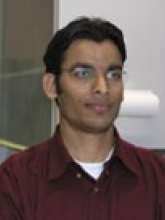
Sravan Payeli studied biology in his home country India before moving to Switzerland to the Cardiovascular Research Division (Prof. Thomas F. Lüscher) of the Institute of Physiology of the University of Zurich. He there worked under the leadership of Prof. Felix C. Tanner, research group leader, on tissue factor. He published highly recognized work, among them on the prothrombotic gene expression profile in vascular smooth muscle cells of human saphenous vein, but not internal mammary artery (Arteriosclerosis Thrombosis Vascular Biolology 2008). After his postdoctoral fellowship in Switzerland, he returned to India to work in a start-up company.
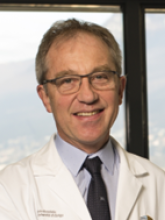
Giovanni Pedrazzini graduated in medicine at the University of Lausanne in 1985. He then trained in internal medicine, first at the Hospital "La Carità" in Locarno under the guidance of Dr. G. Mombelli and then at the Inselspital in Bern. After a short appointment as Capo Clinico in Internal Medicine at the Hospital Locarno, he moved again to the “Inselspital” Bern (University Hospital), to train in cardiology and then in interventional cardiology under the leadership of Prof. Bernhard Meier. He was then appointed consultant in the Department of Cardiology (Prof. Thomas F. Lüscher) at the University Hospital Zurich and intermittently participated in various specialist courses abroad. He is a member of the Swiss Society of Internal Medicine (1992), the Swiss Society of Cardiology (1996; and president from 2019-2020) and the European Society of Cardiology (2004). He is also a member of the Swiss Working Group on Interventional Cardiology, of which he served as Chairman from 2010 to 2012. In the same year, he obtained the venia legendi (Habilitation) in cardiology of the University of Zurich. As of 2020 he became head of cardiology at the CardioCentro Lugano and Professor of Cardiology at the Università della Svizzera Italiana.
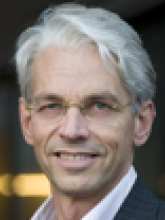
Ton Rabelink received his medical degree in 1986 at the University of Utrecht (cum laude). After obtaining a PhD degree in renal physiology he subsequently received board qualifications in internal medicine (1993) and nephrology and vascular medicine (1995). He was awarded a career stimulation grant by the Royal Academy of Sciences in 1993. Within the framework of this grant he was given the opportunity to work in the lab of professor Lüscher and become experienced in molecular biology. After his return to Utrecht he subsequently became chairman of medicine in 2000. In 2004 he moved to Leiden University to become head of Nephrology and Transplantation. Since 2010 he is Chairman of Medicine in Leiden University Medical Center. He has served in several professional organizations such as the Kidney Foundation (Chairman of the scientific board), member of the National Committee on adult stem cell research (ZonMW, TAS) and chairman of the council of pathogenesis of the scientific board of the Dutch Heart Foundation. He has published over 300 papers in peer reviewed journals. His current research interest is focused towards vascular biology and in particular the role of the endothelium in vascular biological processes and cell therapy. In the latter the focus is on clinical development of MSC and beta cell therapy.
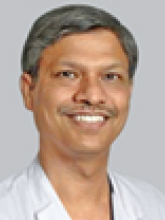
Girish Ramteke studied medicine at the University of Bhopal, India and trained in internal medicine and cardiology in his country. In 2002 he came to the department of cardiology of the University of Zurich to train in interventional cardiology for two years and then returned to Bhopal University as an associate professor. Today Girish Ramteke is Professor and Chair of the Department of Medicine and Cardiology at the Mahatma Gandhi Memorial Government Medical College and the attached Maharaja Yeshwantrao Hospital, Indore, India.
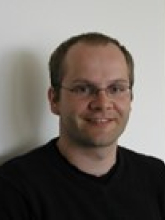
Romeo Ricci studied medicine at the University of Bern, Switzerland. After clinical training in surgical pathology at the University of Zurich Switzerland, he joined the Research Institute of Molecular Pathology in Vienna as a postdoctoral fellow (Prof. Erwin F. Wagner). He subsequently worked at the Cardiovascular Research Division at the Institute of Physiology at the University of Zurich (Prof. Thomas F. Lüscher). Afterwards, he built up his own research laboratory at the Institute of Cell Biology at ETH Zurich where he received an Assistant Professorship in 2007. In 2010, he accepted a full professorship at the University Hospital of Strasbourg with a research group at the IGBMC. His research has discovered novel molecular mechanisms that contribute to the understanding of inflammatory disorders, atherosclerosis and diabetes. He has been awarded several distinguished research prizes, including being selected as a new EMBO Young Investigator in 2009 and the award of an ERC starting grant to his laboratory in 2012.
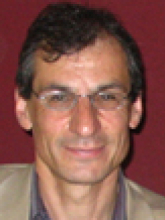
Vincent Richard studied pharmacy in Rouen (France) where he continued his formation under Prof. Christian Thuillez. In 1988, he moved to Switzerland where he conducted research at the Department of Cardiology at the University Clinic Basel (Switzerland). From this research he was able to publish a series of highly influential research papers on the effect of nitric oxide in coronary arteries. In 1995, Vincent Richard returned for a small sabbatical to Basel, where he conducted an experiment using ultrasound and the Doppler effect to investigate the effect of nitric oxide on vasodilation in the lower arm. With more than 800 citations he received with his publication in the medical journal Circulation, this article constitutes one of the most cited scientific publications in this field. Today, Vincent Richard is Professor of Pharmacology at the University of Rouen.
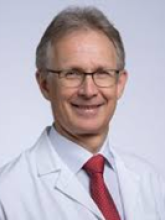
Hans Rickli studied medicine at the University of Zurich and then trained in internal medicine and cardiology at the Cantonal Hospital St. Gallen (Dr. Walter Angehrn) and the University Hospital Zurich (Prof. Thomas F. Lüscher). He then returned to St. Gallen as Consultant in interventional cardiology and became head of cardiology in in 2006. In 2004, he had recieved the venia legendi (Habilitation) in cardiology of the University of Zurich and six years later was nominated as professor of cardiology (Titular-Professor). Hans Rickli, is member and was president of the Swiss Society of Cardiology (2018-2019). His research focusses on heart disease, in particular interventional cardiology.
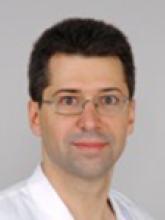
Marco Roffi studied medicine in Lausanne and subsequently trained in internal medicine and cardiology at the Clinica Medica Montecucco and the “Inselspital” Bern (University Hospital; Prof. Bernard Meier)). He then further trained abroad at the Cleveland Clinic (Prof. Eric Topol) in interventional cardiology and then returned to Zurich as consultant in interventional cardiology at the University Heart center (Prof. Thomas F. Lüscher). He is now full professor of cardiology and Vice-Chairman of Cardiology, and Director of the Interventional Cardiology Unit at the University Hospital of Geneva, Switzerland. He served as chairman of the programme committee of the ESC Congress 2019 and 2020 and is member of the ESC Committee for Practice Guidelines. In that capacity, he chaired the 2015 ESC Guidelines on NSTE-ACS. Furthermore, he was ESC Global Scientific Activity Ambassador for the Middle East and India from 2018-2020. He has co-authored over 300 PubMed publications. His clinical and research interests include acute coronary syndromes, antiplatelet therapy, coronary artery disease in diabetes, and carotid as well as peripheral interventions.
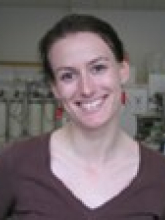
Izabella Rosenberg studied biology in his home country in Poland before moving to Switzerland to the Cardiovascular Research Division (Prof. Thomas F. Lüscher) of the Institute of Physiology of the University of Zurich. He there worked under the leadership of Prof. Felix C. Tanner, research group leader, on L-selectin and its role in atheroslcerosis (PLoS One. 2011) as well as on Lox-1 in endothelial transgenic mice (European Heart Journal 2014). After her fellowship she moved to industry.
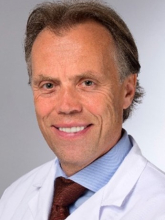
Frank Ruschitzka studied medicine at the University of Göttingen, Germany and trained in in-ternal medicine and nephrology at the University Medical Center, thereof. In 1994 he moved as a Research Fellow to the cardiovascular research division (Prof. Thomas f. Lüscher) of the Department of Cardiology (Prof. Bernhard Meier) at the University Hospital (“Inselspital”) in Bern, Switzerland. In 1997, he moved in the same position to the Cardiovascular Research Division of the Institute of Physiology at the University of Zurich. From 1999-2003 he trained as a Fellow in cardiology at the Department of Cardiology of the University Hospital Zurich (Prof. Thomas f. Lüscher) and became Junior Consultant, thereof, with a particular focus on heart failure. In 2008, he became Senior Consultant and in 2014, he was nominated Head of the Heart Failure Unit at this institution. Based on his work in cardiovascular physiology and heart failure, he received the venia legendi (Habilitation) in cardiology at the University of Zurich in 2001 and Clinical Professor in 2007. In 2012, he was nominated as Associate Professor of Cardiology with a particular focus on heart failure and in 2018, he was promoted to Director of the Department of Cardiology, University Heart Center, Zurich, Switzerland.
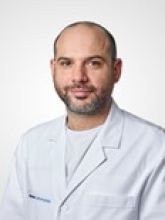
Simon Sämpfli studied medicine at the University of Zurich. He then spends 2 years in the cardiovascular research division of the Institute of Physiology in Zurich (supervisor: Prof. Felix C. Tanner) and worked on stress-induced arterial thrombosis in mice. He then trained in internal medicine and cardiology at the Department of Cardiology of the University Hospital Zurich (Prof. Thomas F. Lüscher) and was later nominated as junior consultant in echocardiography thereat. In 2018 he was appointed senior consultant of non-invasive cardiology at the Cantonal Hospital Lucerne. In 2022 he was further recruited as parttime research group leader at Center for Molecular Cardiology, University of Zurich
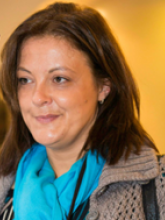
Marzia Schiavoni graduated in medicine at the Sapienza University of Rome in 2001 and specialized in cardiology in 2008. Between 2003 and 2005 she spent 2 years as a research fellow at the Cardiovascular research laboratories of the University of Zurich (institute of Physiology), under the supervision of Professor F Cosentino and M Volpe. During her fellowship she investigated the molecular mechanisms of diabetes-related vascular dysfunction and published several papers in top journals including PNAS. Upon completing her fellowship she returned to Rome and shortly after moved to San Camillo de’ Lellis hospital in Rieti where she works as a clinical cardiologist.
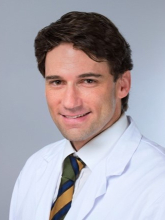
Christian Schmied studied medicine in Zurich and trained in internal medicine at the Cantonal Hospital Winterthur (Prof. Peter E. Ballmer) and then in Cardiology at the University Heart Center of the University Hospital Zurich (Prof. Thomas F. Lüscher). He then was nominated consultant and head of the outpatient clinic. He has a particular interest in Sports Cardiology and worked closely with the FIFA on Football medicine. He regularly organized a well attended Sports Cardiology meeting at the University Hospital Zurich. He received his venia legend (Habilitation) in cardiology at the University of Zurich in 2014 and was promoted clinical professor (Titular-Professor) in 2020. In 2023 he moved to the Klinik im Park in Zurich Switzerland.
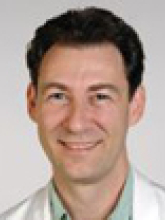
Jürg Schwitter studied medicine in Zurich, was trained in internal medicine and subsequently in cardiology at the hospitals of Glarus and Zurich. He completed a postdoc at the University of California in San Francisco under Professor Charles B. Higgins in the field of cardiac magnetic resonance imaging. In 1998 he returned to the Clinic of Cardiology at the University Hospital of Zurich and served here as a senior physician. He established cardiac MRI both clinically and in terms of scientific research. Jürg Schwitter published in the best journals of cardiovascular medicine including Circulation. Some of his papers have been the most frequently cited publications of the University of Zurich in the last few years. In due recognition of his merits he was appointed Head of Cardiac MRI and Professor of Cardiac Imaging at Centre Hospitalier Vaudois in May 2009.
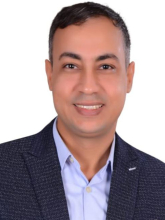
Mohammady Shahin has studied medicine and completed his basic clinical training in his home country Egypt. In 2016 he moved to Switzerland to train in interventional cardiology at the University Heart Center, Department of Cardiology (Chair: Thomas F. Lüscher) of the University Hospital in Zürich. During 2.5 years of training he became a fully trained interventional cardiologist. Furthermore, he was involved in clinical research and published a study in the Occurrence and Impact of Time Delay to Primary Percutaneous Coronary Intervention in Patients With ST-Segment Elevation Myocardial Infarction (Cardiol Res. 2017;8(5):190-198) and on Cardiovascular Risk Profile, Presentation and Management Outcomes of Patients with Acute Coronary Syndromes after Coronary Artery Bypass Grafting (Curr Probl Cardiol 2021;00:101078). Since January 2019 he is a Lecturer of Cardiology and Consultant Interventional Cardiologist at the University Hospital Sohag in Egypt.
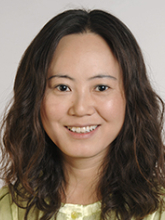
Yi Shi studied medicine at Shanghai Medical College, Fudan University (CHN) and did her PhD study at the Department of Pharmacology and Pharmacy of the University of Hong Kong. After that, she joined Professor Thomas F. Lüscher at the Cardiovascular Research Laboratory in Zurich as postdoctoral fellow. In 2012 Yi Shi was appointed Associate Professor at the Fudan University. Currently she is working at the Biomedical Research Laboratory of the Zhongshan Hospital, Shanghai. Her research interest includes the cardiovascular pharmacology of natural products including Chinese medicine, in particular the modulatory actions on vascular reactivity as well as the effects of endothelial function on allograft rejection and tolerance.
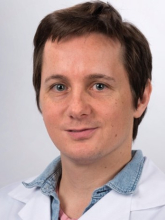
Brank Simic studied biochemistry in his native country Serbia and did a PhD at the University of Zurich in this field. In 2010 he joined the then Cardiovascular Research Division (Head: Prof. Thomas F. Lüscher) of the Institute of Physiology at the University of Zurich – Irchel as a postdoctoral fellow. He worked on the endothelial effect of CETP inhibitors such a Torcetrapib and Anacetrpib which he published in the European Heart Journal and Atherosclerosis, respectively. He then studied at the Center for Molecular Cardiology (Chairman: Prof. Thomas F. Lüscher, Director: Giovanni G. Camici) at the Schlieren Campus of the University of Zurich a stable nitrocompound (MCP-1011) and its effects on angiogenesis in a model of peripheral arterial disease (Atherosclerosis 2020). In 2017 he left the Center for Molecular Cardiology to accept another postdoctoral fellowship at the Institute of Biochemistry at the Campus Irchel of the University of Zurich.
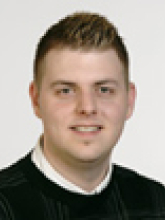
Timo Speer studied medicine at the University of Saarland (D). From 2010 to 2012 he was Postdoctoral Research Fellow at the Department of Cardiology of the University Hospital Zurich and the Institute of Physiology, University of Zurich under Prof. Thomas F. Lüscher and Prof. Ulf Landmesser. In 2013 finished his experimental thesis entitled "Chronic Kidney Disease (CKD) transfoms high-density Liporotein (HDL) into a Noxious Particle linking endothelial dysfunction, hypertension and Innate Immunity". From 2012 - 2023 he was Head of the Working Group on Vascular Biology and lipoprotein Metabolism at the University Hospital Saarland (D). He is now Professor of Nephrology at the Johann-Wolfgang Goethe University in Frankfurt am Main.
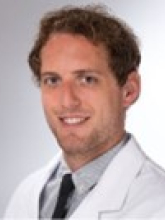
Remo Spescha studied biology at the University of Zurich. For his master thesis he worked in at the Cardiovascular Research Division of the Institute for Physiology thereat. After graduating in human biology he investigated between 2011 and 2014 new molecular mechanisms involved in ischemic stroke for his doctoral thesis at the Center for Molecular Cardiology at the Schlieren Campus of the University of Zurich in the research group of Prof. Giovanni G. Camici. After his PhD Remo Spescha joined industry in Switzerland.
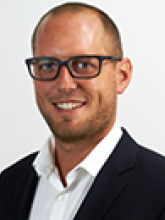
Remo Spescha studied biology at the University of Zurich and for his master’s thesis he worked in cardiovascular research at the Institute for Physiology. After graduating in human biology he investigated between 2011 and 2014 new molecular mechanisms involved in stroke for his doctoral thesis at the Center for Molecular Cardiology of the University of Zurich in the research group of Giovanni G. Camici, Ph.D. Remo Spescha plans to specialize himself in the field of laboratory medicine.
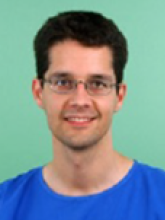
Lukas Spieker studied medicine at the University of Bern and the specialized in internal medicine and cardiology. In 1998 he joined the clinical cardiovascular research division (Prof. Georg Noll) of the Department of Cardiology (Prof. Thomas F. Lüscher) to work on endothelia function, HDL-Cholesterol and stress in healthy individuals and patients with cardiovascular disease. His papers on endothelin and mental stress as wall as HDL-C were published in top journals such as Circulation and well cited. He then became a clinical fellow in the training program of the institution. Due to a sudden death in his young family, he decided to return to his hometown Grenchen and work as a cardiologist in private practice.
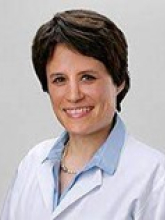
Barbara Stähli studied medicine at the University of Bern. She then trained in internal medicine at the regional hospital Langenthal (Head: Prof. Rolf Sträuli) and thereafter spend 2 years in the cardiovascular research division of the Institute of Physiology in Zurich (supervisor: Prof. Felix C. Tanner) and worked on the regulation of tissue factor. She then moves for one year to the Cantonal Hospital Aarau to train in vascular surgery, but then changed her mind and decided to become a cardiologist. She received her basic training at the Department of Cardiology of the University Hospital Zurich (Prof. Thomas F. Lüscher) and later moved for further training in interventional cardiology to the Montreal Heart Center. She then moved back to Berlin, Germany to take over a junior consultant position at the Cardiology Department of the Charité (Prof. Ulf Landmesser) and returned to Department of Cardiology of the University Hospital Zurich (Prof. Frank Ruschitzka) in 2018 as a consultant in interventional cardiology. In 2021 she was, thanks to a donation by the Zurich Heart House nominated as assistant professor of cardiology at the University of Zurich
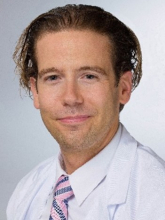
Jan Steffel studied Medicine at the Universities of Bonn and Munich from 1996-2003 and recieved his Doctoral Degree in 2004. From 2003-2005 he was postdoctoral fellow in cardiovascular research at the Institute of Physiology of the University of Zurich (Prof. Felix C. Tanner) and then trained in cardiology at the University Heart Center (Prof. Thomas F. Lüscher) thereof, followed by a fellowship in internal medicine in Baden (Prof. Jürg Hans Beer) and Zurich (Prof. Edouard Battegay). In 2012 he became junior and later senior consultant in cardiology with a specific interest in arrythmias and anticoagulation. From 2018 to 2021 he was vice chairman and clinical professor of cardiology at the University Hospital Zurich. He is now consulting cardiologist at the Hirslanden Group in Zurich, Switzerland
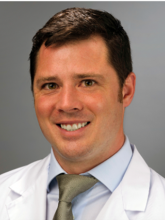
Sokrates Stein studied Biology at the University of Tübingen, in Germany from 2002-2007. From 2008-2011 he did his PhD study in Integrative Molecular Medicine at the Cardiovascular Re-search Division of the Institute of Physiology (Prof. Christian M. Matter) at the University of Zurich, Switzerland. From 2011- 2015 he was postdoctoral fellow in the Laboratory of Metabolic Signaling at the École Polytechnique Fédérale de Lausanne, Switzerland under the leadership of Kristina Schoonjans and Johan Auwerx. With an AMBIZIONE grant he moved then back to the University of Zurich as a research group leader in molecular atherosclerosis at the Center for Molecular Cardiology (Prof. Giovanni G. Camici and Prof. Thomas F. Lüscher) with a particular interest in transcription factors and atherosclerosis. In 2020 he moved to pharmaceutical industry to work with Novartis Switzerland on Incliseran.
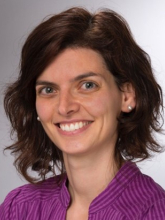
Simona Stivala studied Biological Sciences and Experimental and Applied Biology and did her PhD at the Università die Pavia in Italy. She then moved to the Research Council, Hills Road in Cambridge, UK and joined in 2010 to 2017 the Center for Molecular Cardiology of the University of Zurich as a postdoctoral fellow in the research group of Professor Jürg Beer. Her major scientific achievement are in the field of platelet function and how nutritional fatty acids can exert cardiovascular protective effects. Specifically, she focused on determining how omega-3 of plant origin such as alpha-linolenic acid reduce platelet activation and thrombosis. As a result, she published some seminal papers in Blood and Hematologica on the topic. Today, she is Senior postdoctoral researcher of the research group Myeloid Malignancies at the Department of Biomedicine, University Hospital Basel, Switzerland.
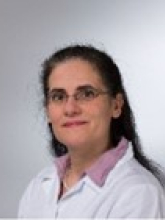
Isabella Sudana studied medicine at the University of Pisa and recieved her Doctor in Medicine in 1993. She then obtained her PhD in Cardiovascular Research thereat. Afterwards, she trained in internal medicine at the University Medical Center Pisa under the guidance of Prof. Stefano Taddei. In 2003, she moved as a Research Fellow to the cardiovascular research division (Prof. Georg Noll) of the Department of Cardiology (Prof. Thomas F. Lüscher) at the University Hospital Zurich, Switzerland to investigate endothelial function and cardiovascular disease. She published vastly in this field and received the venia legendi (Habilitation) in internal medicine at the University of Zurich in 2012 and was promoted Clinical Professor in Internal Medicine in 2020. Since 2018, she runs the clinical research group of the Department of Cardiology and is responsible for preventive cardiology (i.e. smoking, lipids and hypertension).
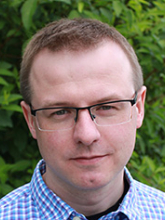
Grzegorz completed biology study at the Jagiellonian University in Cracow, Poland. He started his scientific training in 2002, in Prof. Erwin F. Wagner’s laboratory at the Institute of Molecular Pathology (IMP), Vienna, Austria. In 2003 he moved to the University Hospital of Zürich, Switzerland to the laboratory of Prof. Thomas F. Lüscher. At the end of 2004 he started his PhD in Prof. Romeo Ricci group at the ETH Zürich. After completion of his PhD study he moved to the laboratory of Prof. Gerard Karsenty at the Columbia University, New York, USA. Currently, he is leading his own research group at the Rudolf Virchow Zentrum (RVZ) at the University of Würzburg in Germany sponsored by the Emmy Noether Programme from the German Research Foundation and the ERC starting grant. His research focuses on identification of signaling cascades promoting metabolic diseases such as obesity, diabetes and atherosclerosis. He is an author of number of high impact research publications in such journals as Science, Cell, Cell Metabolism, Cell Stem Cell and Journal of Experimental Medicine.
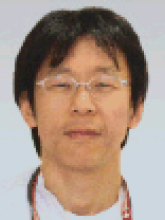
Hiroyuki Takase studied medicine at the Nagoya City University (Japan). From 1993 to 1995 he conducted research at Prof. Lüscher’s Cardiovascular Research Group at the “Insel” Hospital Bern. Since 1995, Hiroyuki Takase is Head of Cardiology at the Enshu Spital in Hamamats (Japan). His research centers on hypertension, ischemia (including catheterization, coronal tomography, nuclear cardiology, and cardiac MRI), heart failure, echocardiography, chronic kidney insufficiency, and arrhythmia.
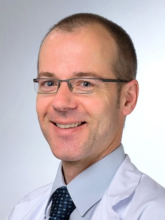
Felix C. Tanner studied Medicine at the University of Basel. After 3 years of studying, he took one year of for a dissertation in basic cardiovascular science under the leadership of Proffs. Thomas F. Lüscher and the late Fritz R. Bühler at the Center for Education and Research of the University of Basel. He then took a postdoctoral fellowship at the University of Ann Arbor under the leadership of Prof. Elisabeth Nabel. Afterwards, he trained in internal Medicine at a local hospital near Zurich and went back to the laboratory at the research division of the Department of Cardiology at the Inselspital Bern working again with Prof. Thomas F. Lüscher and his research team. He then worked in the research division of Cardiovascular Surgery under the leadership of Prof. Thierry Carrel before moving to the University of Zurich to the Cardiovascular Research Division of the Institute of Physiology Zurich-Irchel. Simultaneously, he trained in echocardiography and was promoted to Professor of Cardiology with a special focus on echocardiography at the University of Zurich and eventually Vice-Chairman of Cardiology at the University Heart Center of the University Hospital Zurich. From 2020-2022 he was president of the Swiss Society of Cardiology.
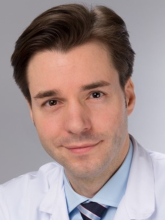
Christian Templin studied Medicine at the University of Hannover, German and then trained in internal medicine and cardiology under the leadership of the late Prof. Helmut Drexler. He then moved with Prof. Ulf Landmesser to Zurich to train in Cardiology at the University Heart Center, Department of Cardiology under the leadership of Prof. Thomas F. Lüscher. He was a special fellow of the Special Programme University Medicine and later became junior consultant and in 2016 was promoted to Assistant Professor of Cardiology, especially Acute Cardiac Care at the University of Zurich as well as head of the Andreas Grüntzig Catheterisation Laboratory thereat.
He published mostly in the best journals, mainly on Takotsubo Syndrome (New England Journal of Medicine 2016) and was awarded the prestigious Götz Prize of the University of Zurich for his contributions to medicine.
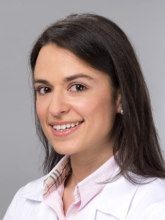
Jelena Templin Ghadri studied Medicine at the University of Hannover, German and then trained in internal medicine and cardiology under the leadership of the late Prof. Helmut Drexler. She then moved with Prof. Ulf Landmesser to Zurich to train in Cardiology at the University Heart Center, Department of Cardiology und the leadership of Prof. Thomas F. Lüscher as well as with Prof. Philipp Kaufmann in cardiac imaging. In collaboration with her husband Christian, she was extremely successful in putting the research programme on Takotsubo and the InterTAK registry together. In 2016 he obtained her academic thesis as a lecturer in cardiology from the University of Zurich. Together with her husband she was awarded the prestigious Götz Prize of the University of Zurich for his contributions to medicine.
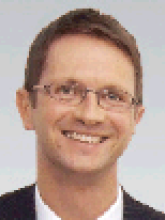
Marcel Tschudi studied medical biology at the University of Basel (Switzerland). Subsequently, he began a Ph.D. in Prof. Lüscher’s Cardiovascular Research Group at the University Clinic Basel on endothelial regulation of coronary arteries. In 1998 Marcel Tschudi assumed a research assistant position at the Cardiovascular Research Laboratory located at the Institute of Physiology at the University of Zürich. A year later he accepted a position at the Swiss National Science Foundation followed by a position at Merck Sharp & Dohme-Chibret AG. Currently, Marcel Tschudi works as project leader at the Medical Tribune in Basel.
Bernd van der Loo studied medicine at Universities in Germany, Belgium and France and obtained his MD degree in 1988. He then worked at the University College London (Prof. John Martin) and afterwards moved to the Inselspital (University Hospital) Bern to work in cardiovascular research (Prof. Thomas F. Lüscher). In 1997 he moved with his supervisor first to the cardiovascular research division of the Institute of Physiology (Prof. Thomas F. Lüscher) and published seminal work on vascular aging (J Exp Med. 2000;192:1731; J Amer Coll Cardiol. 2000;36:1691; Circulation. 2002;105:1635). He then trained in cardiology and angiology and received his lecturership (venia legend or Privatdozent) in cardiology in 2004 and was nominated junior consultant in echocardiography. In 2014 he left for Germany.
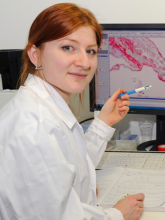
Daria Vdovenko studied at the Lomonosov Moscow State University in the Department of Molecular Immunology in Moscow, Russia where she obtained her Master’s degree in 2013. Previously, she worked as a trainee in various laboratories in the Ukraine, Moscow and Stockholm. Since 2014 she joined the Center for Molecular Cardiology at the University of Zurich as a PhD student in the Laboratory of CardioImmunology (Supervisor: Prof. Urs Eriksson). After her PhD she worked as a post-doctoral fellow at the same institution in a joint appointment with the Research Division of the Cardiocentro Ticino, in Lugano (Supervisor: Prof. Giuseppe Vassalli). In 2021 she moved to Canada as a postdoctoral fellow in immunology at McGill University in Montreal.
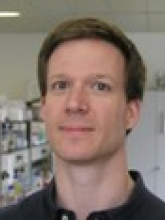
Tobias von Lukowitz studied medical studies at the University of Regensburg, the Technical University of Munich, in Zurich and in Birmingham, United Kingdom from 1995-2002. He obtained his doctorate at the Technical University of Munich on the "Construction of an adenoviral vector for radiation-inducible expression of the herpes simplex virus thymidine kinase". He then undertook specialist training in internal medicine and cardiology in Regensburg, Zurich, Baden, Santiago de Compostela and Lübeck. Meanwhile, he spent two years of research work in cardiovascular research at the Institute of Physiology of the University of Zurich with a focus on inflammation and atherosclerosis. Then he obtained further training in various clinics in internal medicine and cardiology in Germany. Since 2011 he was working at the Department of Medicine II, University of Lübeck, Germany, before moving to his current position as senior physician in interventional cardiology and electrophysiology at the Starnberg Clinic in Germany.
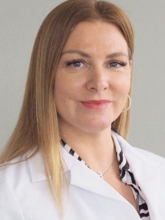
Ana Vukolic, graduated as a veterinary doctor from the University of Belgrade, Serbia in 2004. After that she moved to Switzerland where in 2010 she completed her PhD at the Department of Medicine/Physiology at the University of Fribourg. Following her PhD she worked as a postdoctoral fellow at the INSERM in Nice (France) and later at the ETH in Zurich. In 2020, she joined the Center for Molecular Cardiology where she worked for two years after which she moved to Roche AG as a Team Leader In Vivo Operations in Discovery Pharmacology
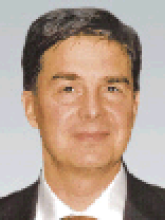
René Wenzel studied medicine in Essen (Germany) where he subsequently specialized in inner medicine and nephrology (the study of the function and diseases of the kidney). Between 1995 and 1996 he worked in the research group of Prof. Noll at the “Insel” Hospital Bern (Switzerland) investigating cardiovascular diseases. In his research, he showed for the first time the mechanisms of endothelin antagonists in the human skin and in the coronary circulation. He also characterized how calcium antagonists and an ACE inhibitor interact with the sympathetic nervous system in patients with high blood pressure. Subsequently, René Wenzel became Assistant Medical Director at the University of Essen, followed by an appointment to Head of Department for Inner Medicine at Zell am See (Austria).
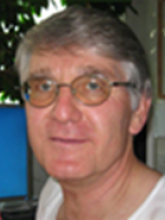
Edward Wight van Dyke studied medicine in Zurich. From 1979 to 1980 he completed the post-doctoral program in Experimental Medicine and Biology at the Medical Faculty of the University of Zurich (Prof. Rolf Zinkernagel). From 1980 onwards, he worked as a post-doctoral fellow with Prof. J. Lindenmann and Prof. H. Binz at the Institute of Immunology and Virology at the University of Zurich in the field of Experimental Immunology. From 1981 to 1982 changed to clinical medicine and worked with Dr. P. Frey at the Institute for Anaesthesia and Intensive Care Medicine at the Triemli Hospital in Zurich. In 2000, he moved to the Department of Gynaecology and Gynaecological Oncology at the University Hospital Zurich (Prof. G. Duc, Prof. U. Haller and Prof. E. Hochuli). Between 1994 and 1995 Dr. Wight van Dyke joined Prof. Thomas F. Lüscher at the cardiovascular research of the “Inselspital” (University Hospital) in Berne with a fellowship in the field of experimental cardiology. He characterized for the first time endothelial and vascular function of the uterine artery during pregnancy and menopause. As of 2000, Dr. Wight van Dyke has been Director of Gynecology and Gynecological Oncology at the University Hospitals Basel. In 2003 Dr. Wight van Dyke received the venia legendi in Gynecology at the University of Basel. He is now retired.
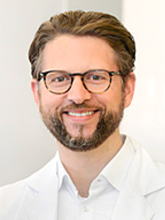
Stefan Winnick studied medicine in Germany and then worked at the Institute of Physiology, cardiovascular research (Head: Prof. Thomas F. Lüscher; Supervisor: Prof. Christian M. Matter) and the Center for Molecular cardiology and obtained his PhD on sirtuins in 2013. He then trained in internal medicine and cardiology at the University Hospital Zurich (Director: Prof. Thomas F. Lüscher) and took a fellowship in cardiac implantable electronic devices (CIED) at the Heart Center Leipzig (Head: Prof. Gerd Hindricks) and later in the heart failure unit at the University Hospital Zurich. In 2018 he received the venia legendi (Habilitation; Privatdozent) on” The role of Sirtuins in Atherosclerosis – Molecular Mechanisms & Clinical Implications”. Since February 2022 he is chief of cardiology, arrhythmias and angiology at the Regional Hospital Wetzikon (Head: Prof. Urs Eriksson), near Zurich, Switzerland.
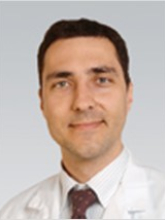
Thomas Wolber absolvierte sein Medizinstudium in Wien. Danach bildete er sich in Innerer Medizin und Kardiologie in Feldkirch, St. Gallen, an der Universität Bern und am UniversitätsSpital Zürich weiter. Im Jahre 2007 wurde er teilzeitlicher (60%) Oberarzt in der Rhythmologie (Leiter: Prof. Firat Duru) an der Klinik für Kardiologie (Direktor: Prof. Thomas F. Lüscher). Seine Haupttätigkeiten lagen in der Diagnostik und Behandlung von Herzrhythmusstörungen inklusive Katheterablationen sowie Durchführung klinischer Studien in seinem Interessengebiet. Im Jahre 2013 habilitierte er sich in Kardiologie und erhielt die Venia Legendi für dieses Fachgebiet an der Medizinischen Fakultät der Uni-versität Zürich. Daneben betreibt er eine kardiologische Praxis im Vorarlberg.
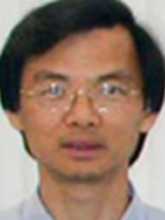
Zhihong Yang studied medicine in Wuhan in the People’s Republic of China. In 1987 the Swiss Confederation awarded him a federal scholarship for advanced studies. At the University of Basel he served as research assistant in the vascular physiology group (Prof. Thomas F. Lü-scher) and later as senior assistant in cardiovascular research at the Institute of Physiology, University of Zurich. As a staff member of the cardiovascular research teams in Basel, Bern and Zurich, Zhihong Yang was able to develop his scientific abilities and publish in the best journals of medicine and science on bypass fraft disease and endothelial function. In 1999 he received the venia legendi (Habilitation) in Physiology at the University of Zurich In 2001 he was appointed Professor of Physiology at the University of Fribourg. His research group focusses on inflammaging, organism aging, and age-related chronic diseases. He currently is chairman of the Department of Medicine.
